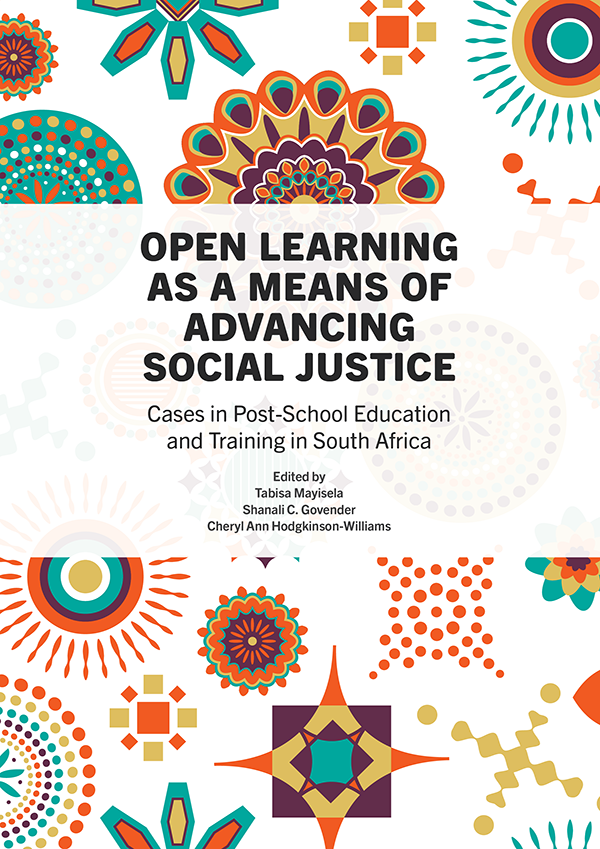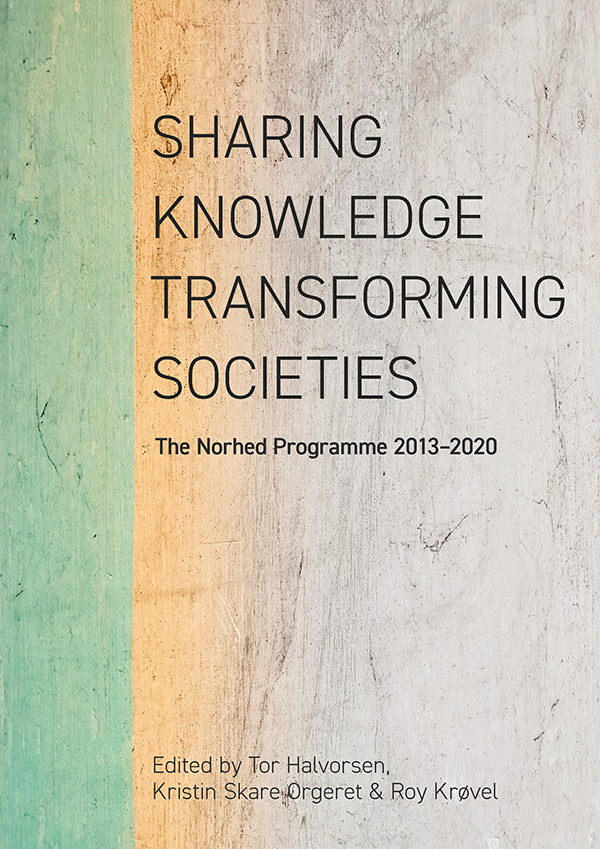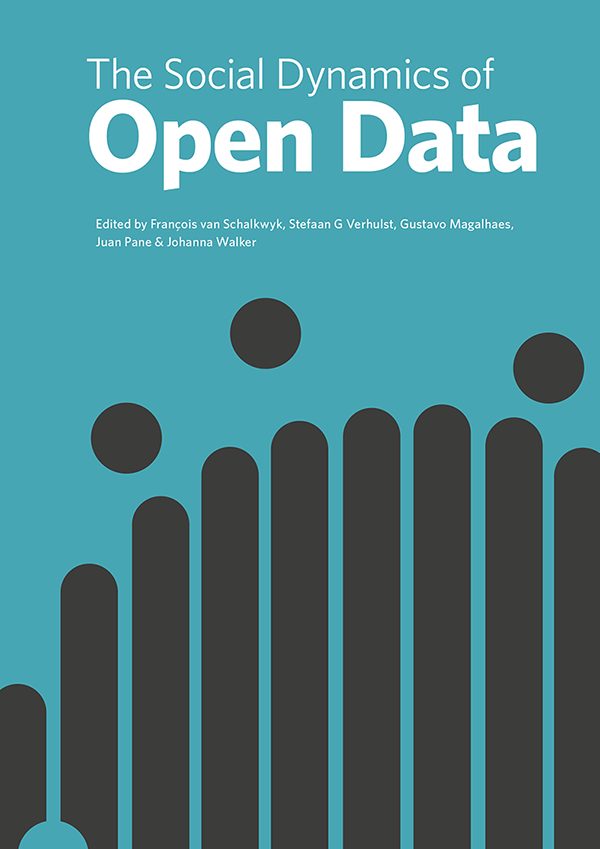African Minds
This page shows the latest publications (in descending order of publication date) from African Minds.
Metadata is licensed as Creative Commons Zero (CC0) and is retrieved from Thoth’s open APIs.
Last updated: 2025-11-18 01:00:06
June 2025
Linking Education and the Local Economy: Intermediaries in a Furniture Ecosystem

Author: André Kraak
Cape Town: African Minds, 2025
February 2025
Doctoral Education in Context: Perspectives from Africa
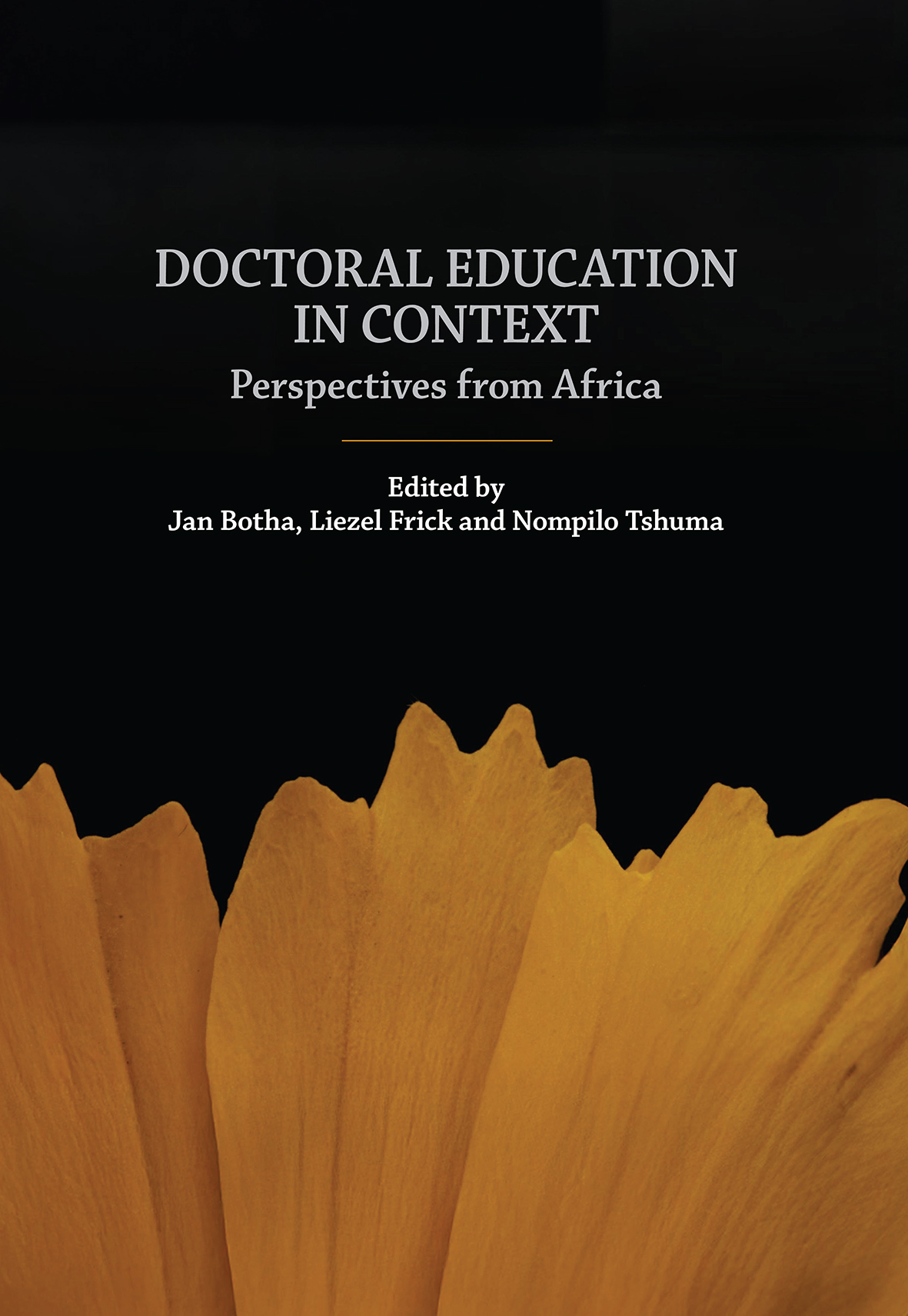
Editor: Jan Botha
Editor: Liezel Frick
Editor: Nompilo Tshuma
Cape Town: African Minds, 2025
https://doi.org/10.47622/9781067253530
Doctoral Education in Context: Perspectives from Africa shares lived experiences and insights of doctoral supervisors from 16 different countries in Africa. The book’s originality lies also in the contributors’ profiles as practicing, novice doctoral supervisors. All of them graduated from the Training Course for Supervisors offered by the Centre for Research on Evaluation, Science and Technology (CREST) at Stellenbosch University in South Africa, with the support of the German Academic Exchange Service (DAAD)/German Rectors’ Conference (HRK) through the DIES Programme.
December 2024
Education Research in African Contexts: Traditions and New Beginnings for Knowledge and Impact
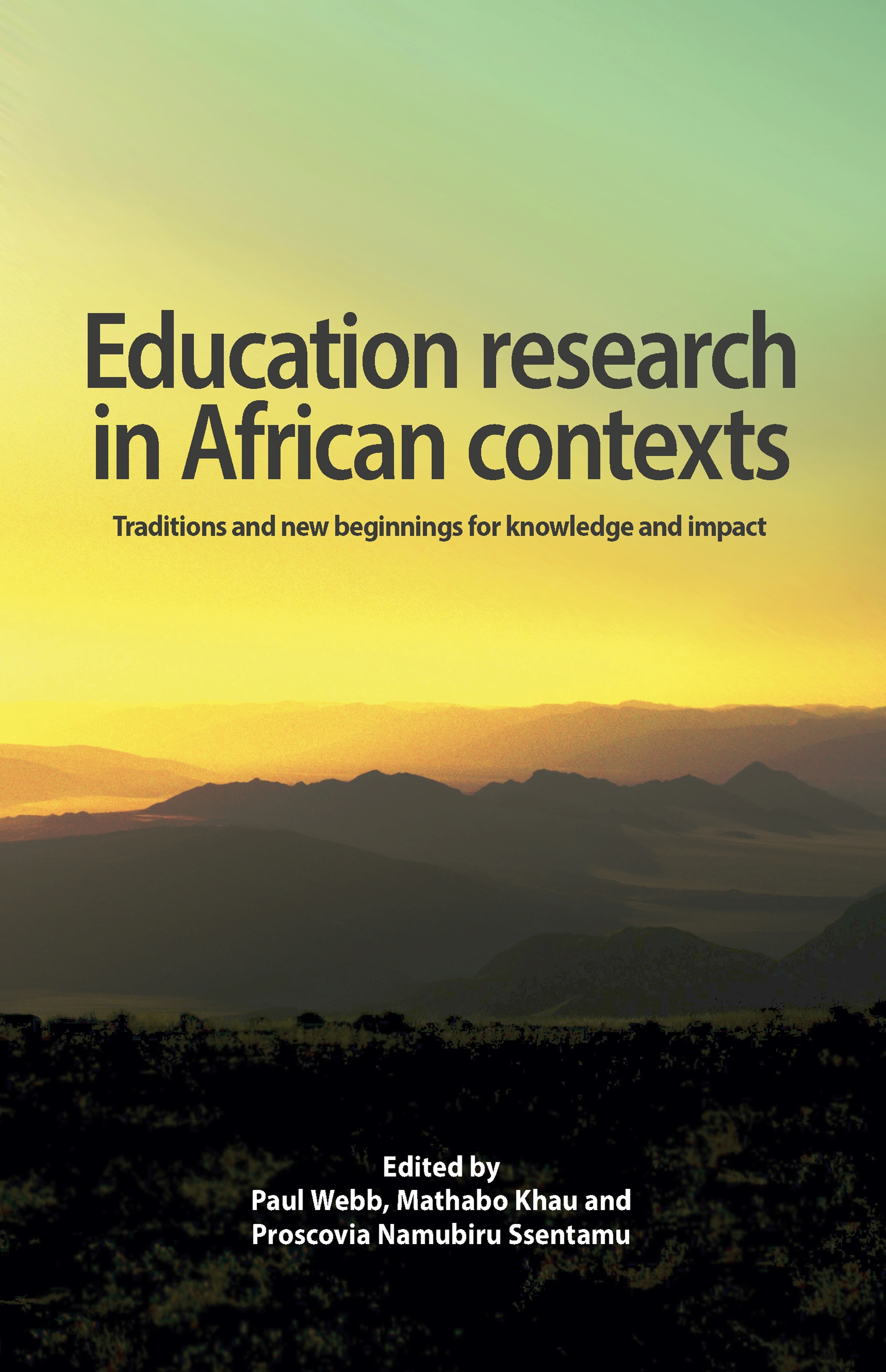
Editor: Paul Webb
Editor: Mathabo Khau
Editor: Proscovia Namubiru Ssentamu
Cape Town: African Minds, 2024
October 2024
From Memory to Marble Vol 1: The Historical Frieze of the Voortrekker Monument, Part I: The Frieze
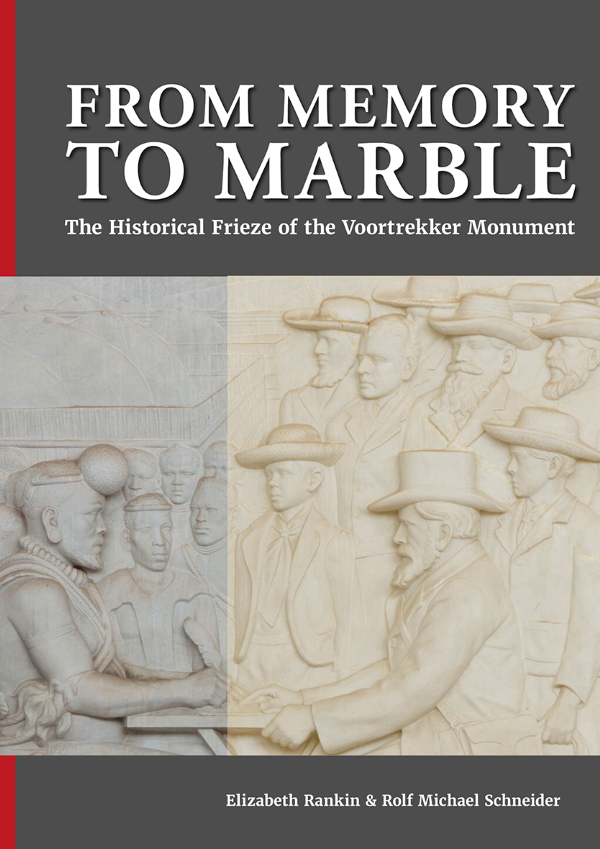
Author: Elizabeth Rankin
Author: Rolf Michael Schneider
Cape Town: African Minds, 2024
September 2024
State Power in Land Reform: Barriers to implementation in the Western and Northern Cape, South Africa, 1990–2006
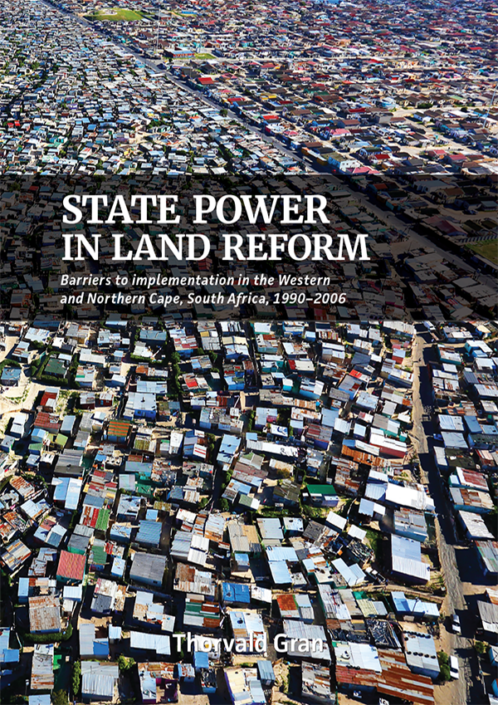
Author: Thorvald Gran
Cape Town: African Minds, 2024
https://doi.org/10.47622/9781928502869
ANC land reform started on a good footing with the RDP, but has since moved to a policy of supporting entrepreneurial emerging middle-class black farmers rather than the immiserated rural subsistence farmers. This has shifted government funding and support towards the urban areas leaving rural areas destitute.
In State Power in Land Reform, the author relies on a robust theoretical frame, extensive policy analysis and empirical data to advocate for a new engagement with local communities through rejuvenated municipalities, that is, through strong local institutions.
State Power in Land Reform provides a valuable analytical account for both the historian and the archive.
Revisiting Africa’s Flagship Universities: Local, National and International Dynamics
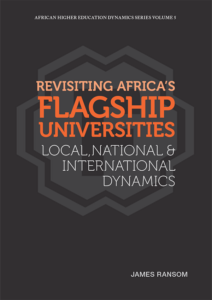
Author: James Ransom
Cape Town: African Minds, 2024
https://doi.org/10.47622/9781928502951
Revisiting Africa’s Flagship Universities: National, International, and Local Dynamics offers a compelling exploration of Africa’s large, public higher education institutions. The book delves into the evolving roles of these universities, examining how they navigate their responsibilities at national, international and local levels.
The book uncovers the tensions between global aspirations, national relevance and local realities. In doing so, this insightful work sheds light on the unique challenges and opportunities faced by African flagship universities, revealing their potential as forces for local, national and international collaboration and development.
Revisiting Africa’s Flagship Universities provides rigorous evidence on the relevance of higher education at the local and national level, and the interrelation between these and the burgeoning international roles of universities. This book makes for important reading for university staff, policymakers, and anyone interested in the future of higher education in Africa.
August 2024
Night-sky: Vol. 2

Editor: Mehita Iqani
Editor: Wamuwi Mbao
Cape Town: African Minds, 2024
https://doi.org/10.47622/9781928502920
What is science communication? This collection proposes that it can be creative writing aimed at the heart, rather than information directed to the mind.
FicSci playfully subverts the term ‘science fiction’ to offer an experimental process that explores the limits of imagination in relation to scientific possibility (and vice versa). FicSci is an experiment in hybridized creative practice that induces new forms of knowledge-making between the hard sciences and the social world. This collection offers writing that emerged from an encounter that brought twelve creative writers together with an astronomer.
The presented science invited contemplation of scientific aspects of the night sky, in specific X-ray binary stars, extra-galactic sources, and magellanic clouds. The creative writings that emerged are attendant to the wider potentialities of scientific thought, and reveal how methodologies for storying the scientific encounter are creatively multi-form.
Rocklands: On Becoming the First Generation of Black Psychologists in Post-Apartheid South Africa
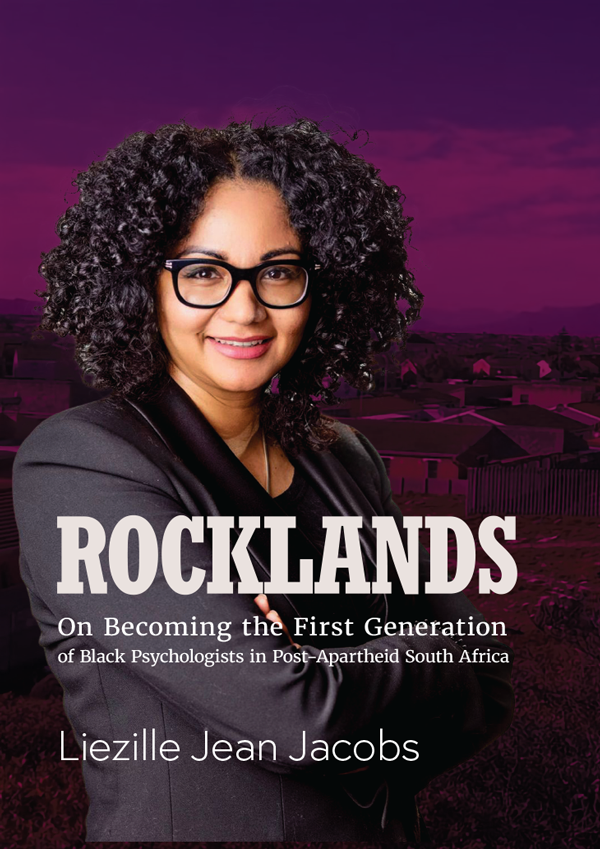
Author: Liezille Jean Jacobs
Cape Town: African Minds, 2024
https://doi.org/10.47622/9781928502890
This book makes a brave and erudite scholarly contribution to the field of psychology. Its method is unconventional but carefully considered. Those who have provided comments on the manuscript unanimously concur – this book is essential reading for students and academics, families and patriarchs in equal measure.
October 2023
African Science Granting Councils: Towards Sustainable Development in Africa
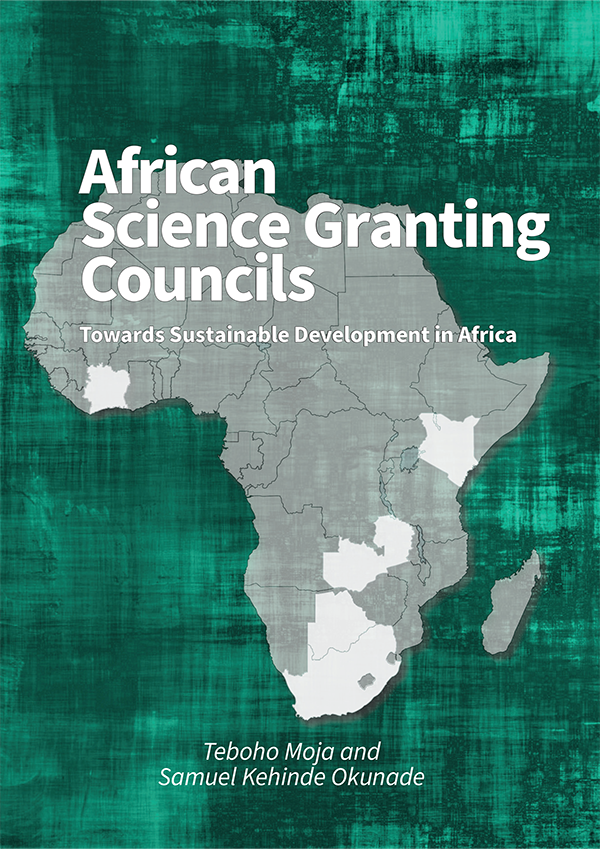
Author: Samuel Kehinde Okunade
Author: Teboho Moja
South Africa: African Minds, 2023
https://doi.org/10.47622/9781928502791
This book delves into the research-policy nexus as it relates to development in Africa. It does so by examining four country-cases – Botswana, Cote d’Ivoire, Kenya and Zambia – while referring to South Africa as a possible exemplar case.
September 2023
Collaboration in Development: A South African Heritage
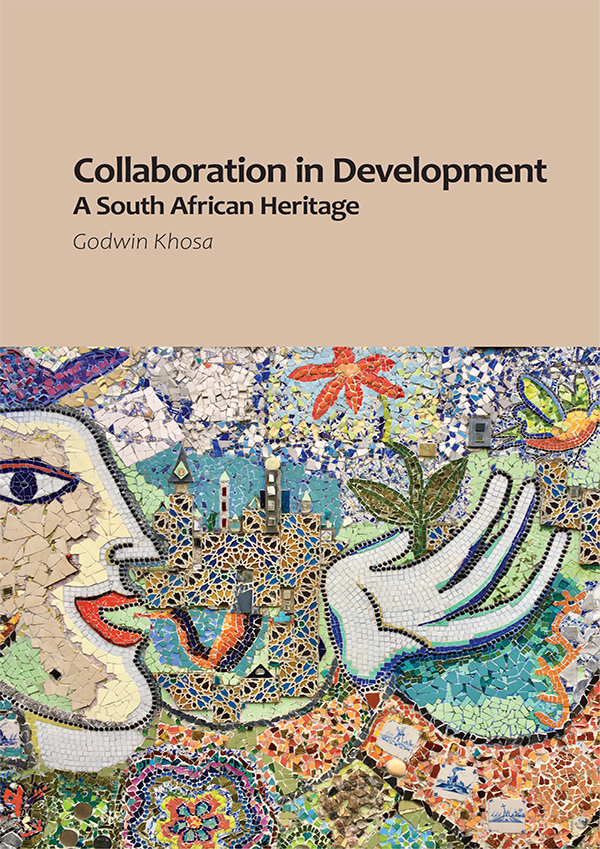
Author: Godwin Khosa
South Africa: African Minds, 2023
July 2023
Flow: FicSci 01

Editor: Wamuwi Mbao
Editor: Mehita Iqani
South Africa: African Minds, 2023
April 2023
Transformative Innovation in Times of Change: Lessons for Africa from COVID-19
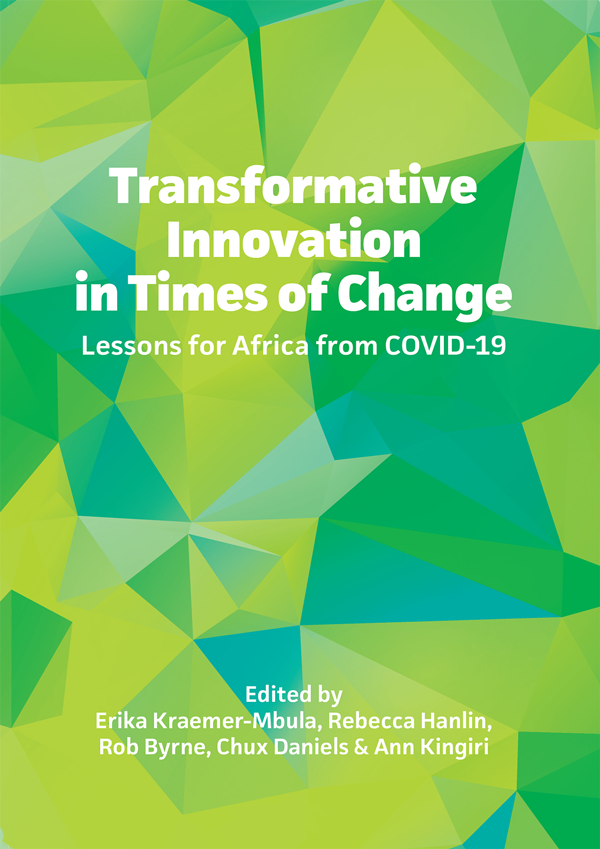
Author: Erika Kraemer-Mbula
Author: Rebecca Hanlin
Author: Rob Byrne
Author: Chux Daniels
Author: Ann Kingiri
South Africa: African Minds, 2023
https://doi.org/10.47622/9781928502760
This book was produced in an environment of uncertainty and constantly changing narratives about COVID-19 and its effects. From a narrative of survival in 2020 to contain the spread of the virus with a central role of government leadership, evidence-informed decisions, solidarity and a scientific race to develop a vaccine taking the central stage; to a later narrative in 2021 focused on socio-economic recovery, building back better, managing vaccine inequalities and visions and proposals for post-COVID societies.
In 2022, we have seen a move to a narrative of post-pandemic (rather than post-COVID-19) and “learning to live with the virus” with societies in the global South learning to navigate the harsh economic realities by looking at opportunities emerging in the digital and regional spaces. The production of this book embeds some of these dominant narratives in different chapters, as they were developed over such unstable ground.
This experience has put a spotlight on the importance of innovative solutions, and the role of public sector, raising a new interest in governance systems and structures, and ways to strengthen governance overall. The pandemic has propelled countries across the world to innovate and develop more resilient systems and strategies that will enable us to gain the capacity to tackle complex challenges we face today and those that will come.
We hope this book helps us extract some valuable lessons from the COVID-19 pandemic. After all, learning from a crisis may well be our best way to prepare for the future.
January 2023
Digital Technology in Capacity Development: Enabling Learning and Supporting Change
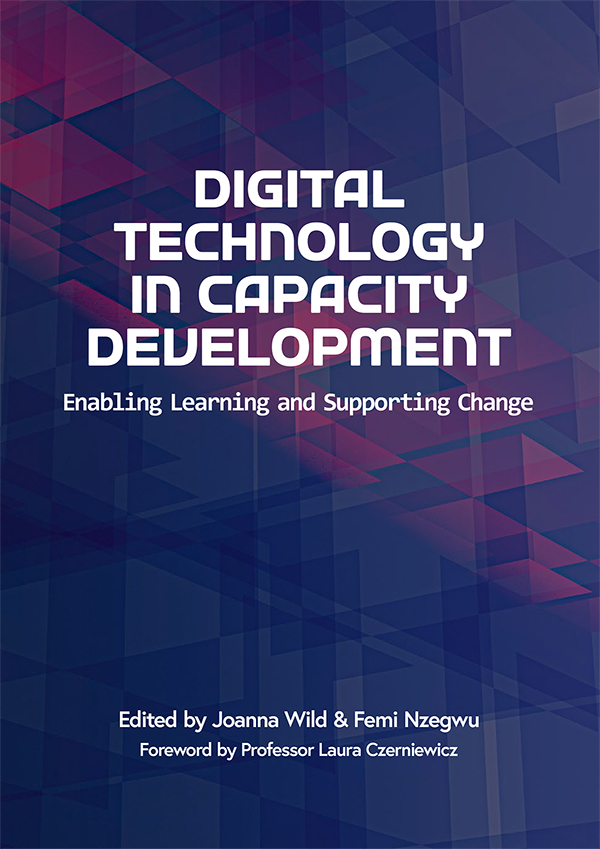
Editor: Joanna Wild
Editor: Femi Nzegwu
Foreword by: Laura Czerniewicz
South Africa: African Minds, 2023
https://doi.org/10.47622/9781928502708
This book focuses on digital approaches to capacity development, reflecting the greater interest in how digital tools and platforms can be used for capacity development in the ‘Global South’. While Covid-19 demonstrated some of the benefits of online learning, the widespread, often uncritical adoption of online tools driven by necessity has left many with an experience of ‘emergency online learning’. This book aims to assist in the design of technology-enhanced capacity development by sharing evidence of practices that are principled rather than rushed; inclusive rather than creating new digital divides.
Who Counts?: Ghanaian Academic Publishing and Global Science
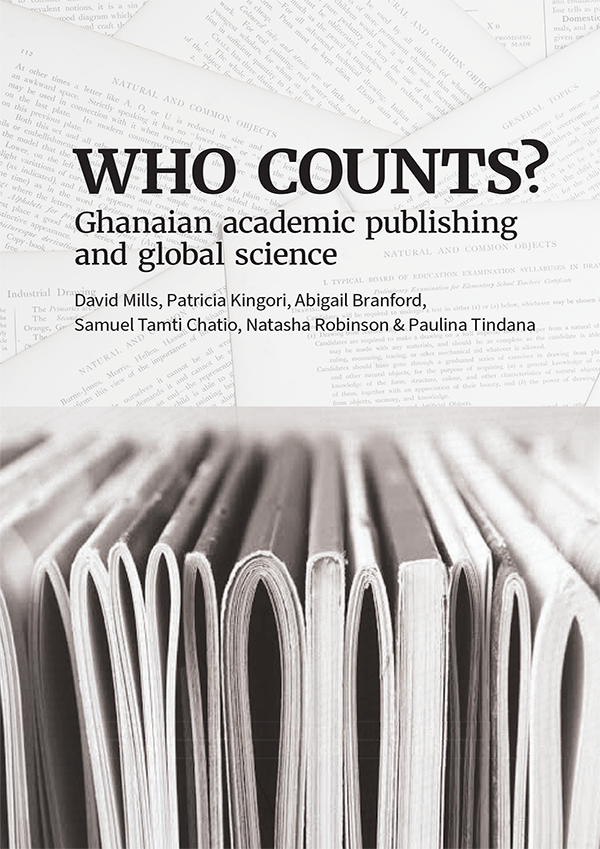
Author: David Mills
Author: Patricia Kingori
Author: Abigail Branford
Author: Samuel T. Chatio
Author: Natasha Robinson
Author: Paulina Tindana
South Africa: African Minds, 2023
https://doi.org/10.47622/9781928502647
Since the 1990s, global academic publishing has been transformed by digitisation, consolidation and the rise of the internet. The data produced by commercially owned citation indexes increasingly defines legitimate academic knowledge. Publication in prestigious ‘high impact’ journals can be traded for academic promotion, tenure and job-security. African researchers and publishers labour in the shadows of a global knowledge system dominated by ‘Northern’ journals and by global publishing conglomerates. This book goes beyond the numbers. It tells the story of how the Ghanaian academy is being transformed by this bibliometric economy. It offers a rich account of the voices and perspectives of Ghanaian academics and African journal publishers. How, where and when are Ghana’s researchers disseminating their work, and what do these experiences reveal about an unequal global science system? Is there pressure to publish in ‘reputable’ international journals, what role do supervisors, collaborators and mentors play, and how do academics manage in conditions of scarcity? Putting the insights of more than 40 Ghanaian academics into dialogue with journal editors and publishers from across the continent, the book highlights creative responses, along with the emergence of new regional research ecosystems. This is an important Africa-centred analysis of Anglophone academic publishing on the continent and its relationship to global science.
December 2022
Reframing Africa?: Reflections on Modernity and the Moving Image
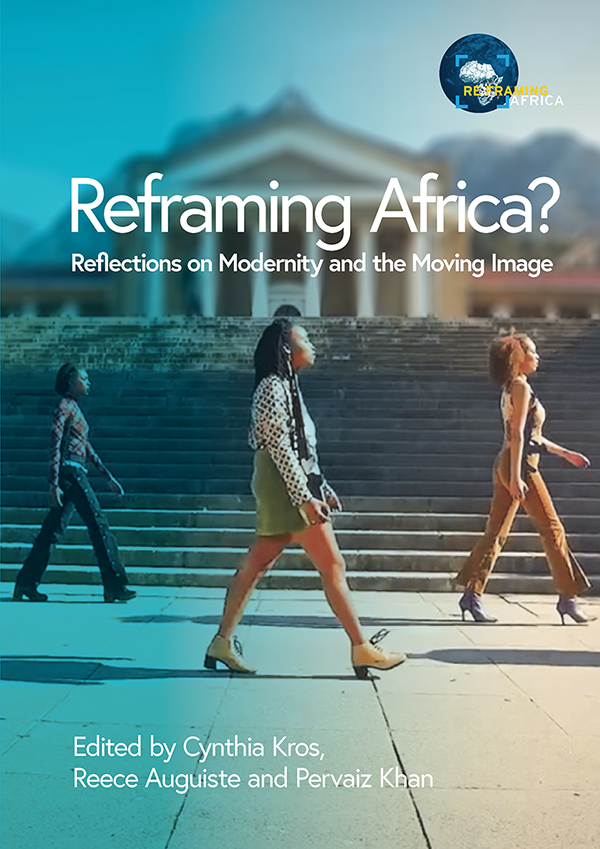
Editor: Cynthia Kros
Editor: Reece Auguiste
Editor: Pervaiz Khan
South Africa: African Minds, 2022
https://doi.org/10.47622/9781928502678
This book takes readers on a series of stimulating intellectual journeys from the late nineteenth century to the contemporary era to explore notions of modernity in the production and reception of the African moving image and of African archival practices. Ideas are presented from multiple historical and contemporary perspectives, while inviting new voices to participate in discussions about the future of the African moving image.
Reframing Africa?makes a plea for the recognition, preservation and repatriation of the African moving image archive, advancing ideas about how it speaks to contemporary Africans, possessed of the power to elucidate their lived experiences and to reorientate perceptions of the past, present and future. On the basis of this wide-ranging appreciation of the archive, the book charts a way forward for African-inflected film studies as well as other programmes in the humanities and social sciences.
Reframing Africa? will appeal to scholars, academics and practitioners across the continent and beyond.
November 2022
On Becoming a Scholar: What Every New Academic Needs to Know
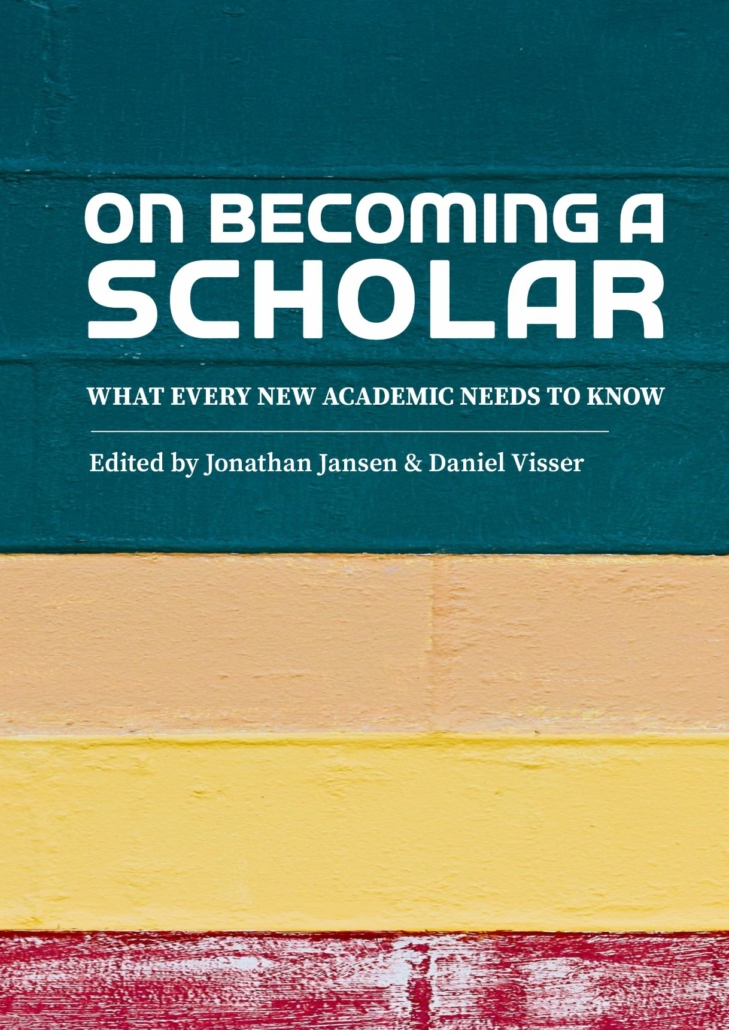
Editor: Daniel Visser
Editor: Jonathan D Jansen
Cape Town: African Minds, 2022
https://doi.org/10.47622/9781928502616
On Becoming a Scholar: What Every New Academic Needs to Know Edited by Jonathan Jansen and Daniel Visser
The origins of On Becoming a Scholar lie in the realisation that there is a need for a vademecum, a handy compendium of ideas, plans and strategies for building a productive and fulfilling academic career to guide the host of prospective academics.
On Becoming a Scholar is geared to help relatively new scholars to construct personal futures and to find their way through the 21st century university. It is intended to be a map, and like any map it does not contain all the contours and details of the landscape, but rather seeks to reveal the important pathways and milestones in the journey to becoming an established academic.
Drawing on highly experienced academics and accomplished professors in their different fields, as well as promising younger academics already on their way, this book cover a concentrated resource of practical wisdom. The topics are broad and, cumulatively, they seek to answer the many questions that experienced mentors encounter every day in their work with new academics.
October 2022
(u)Mzantsi Classics: Dialogues in Decolonisation from Southern Africa
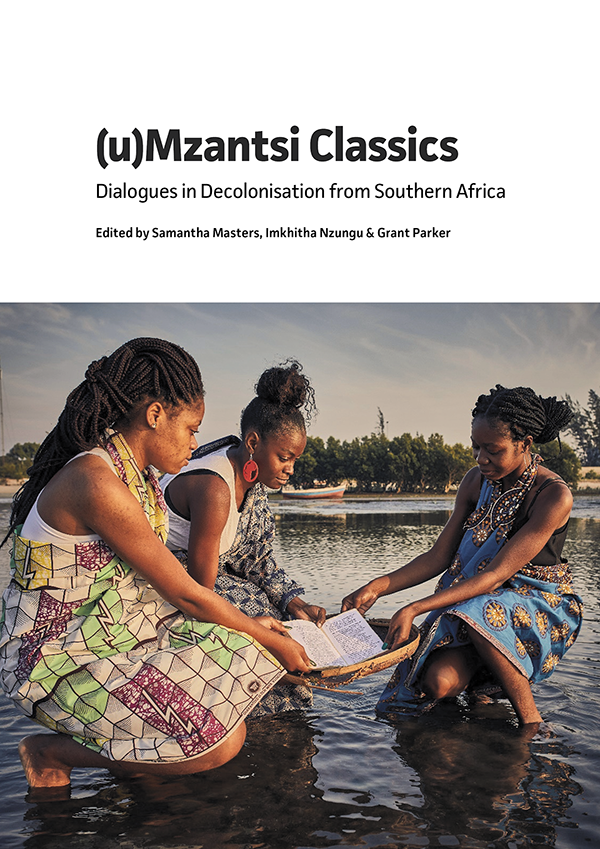
Editor: Samantha Masters
Editor: Imkhita Nzungu
Editor: Grant Parker
South Africa: African Minds, 2022
https://doi.org/10.47622/9781928502302
Though Graeco-Roman antiquity (‘classics’) has often been considered the handmaid of colonialism, its various forms have nonetheless endured through many of the continent’s decolonising transitions. Southern Africa is no exception. This book canvasses the variety of forms classics has taken in Zimbabwe, Mozambique and especially South Africa, and even the dynamics of transformation itself.
May 2022
Positioning Diversity in Kenyan Schools: Teaching in the Face of Inequality and Discrimination
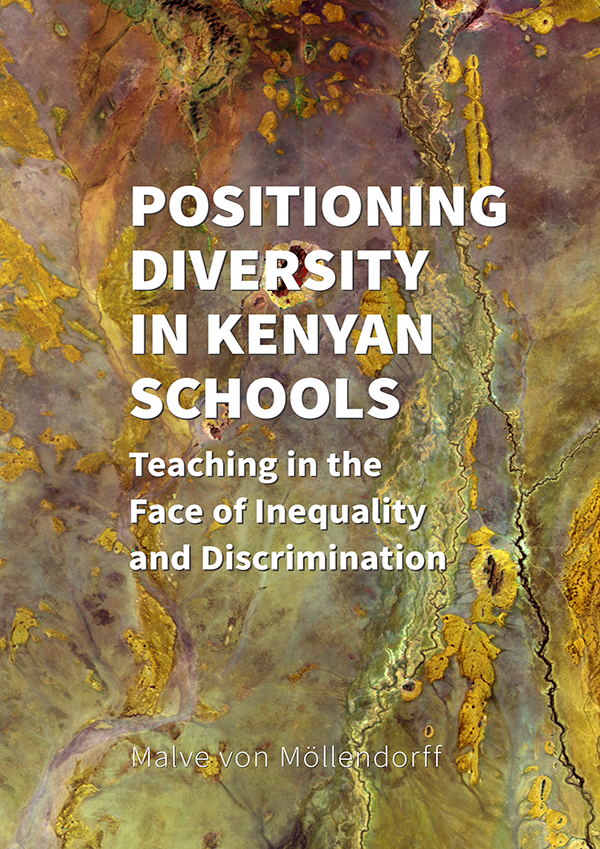
Author: Malve von Möllendorff
Cape Town, South Africa: African Minds, 2022
https://doi.org/10.47622/9781928502333
Education is considered key for societies to achieve greater social cohesion and equality. Yet, schools, as the main providers of formal education, have increasingly come into question concerning their role in manifesting and perpetuating social categorisations, inequalities and discrimination instead of decreasing existing fragmentations and challenging power relations and hierarchies.
As a diverse society, Kenya is faced with power struggles and rivalries between different groups – for instance, along ethnic lines, often constructed deep in colonial history. This affects teaching and learning in school and the result is that Kenya is faced with vast disparities in terms of educational access and success – rendering some social groups marginalised and others favoured.
Positioning Diversity at Kenyan Schools explores the ways in which teachers in Kenyan primary and secondary schools experience and deal with social categorisations and diversity in terms of ethnicity, gender, wealth, culture, religion, etc. in their professional practice and in the current education system. Using critical pedagogy and diversity theory as a lens for positioning diversity in Kenyan schools, the questions that this book sets out to answer are: In what ways do the teachers’ and schools’ practices lead to transformation in terms of more social equality and less discrimination? In what ways do the practices manifest existing group categorisations, hierarchies and discrimination? How can schools and teaching practices in postcolonial Kenya become more inclusive and foster social cohesion and equality?
Out of Place: An Autoethnography of Postcolonial Citizenship
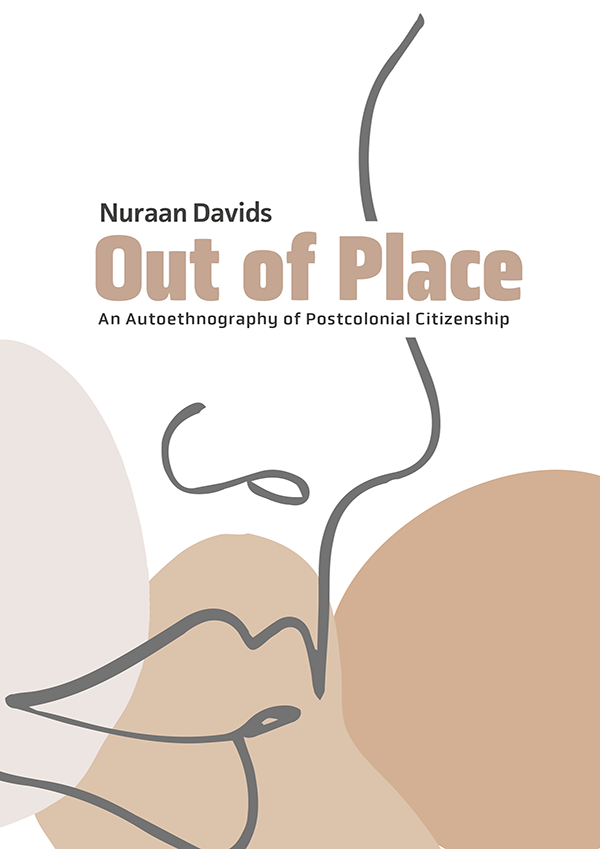
Author: Nuraan Davids
Foreword by: Jonathan D Jansen
Cape Town: African Minds, 2022
https://doi.org/10.47622/9781928502364
Out of Place offers an in-depth exploration of Nuraan Davids’ experience as a Muslim ‘coloured’ woman, traversing a post-apartheid space. It centres on and explores a number of themes, which include her challenges not only as a South African citizen, and within her faith community, but as an academic citizen at a historically white university. The book is her story, an autoethnography, her reparation.
By embarking on an auto-ethnography, she not only tries to change the way her story has been told by others, transforms her ‘sense of what it means to live’ (Bhabha, 1994). She is driven by a postcolonial appeal, which insists that if she seeks to imprint her own way of life into the discourses which pervade the world around her, then she can no longer allow herself to be spoken on behalf of or to be subjugated into the hegemonies of others.
The main argument of Out of Place is that Muslim, ‘coloured’ women are subjected to layers of scrutiny and prejudices, which have yet to be confronted. What we know about Muslim ‘coloured’ women has been shaped by preconceived notions of ‘otherness’, and attached to a meta-narrative of ‘oppression and backwardness’. By centring and using her lived experiences, the author takes readers on a journey of what it is like to be seen in terms of race, gender and religion – not only within the public sphere of her professional identities, but within the private sphere of her faith community.
Low-Income Students, Human Development and Higher Education in South Africa: Opportunities, Obstacles and Outcomes
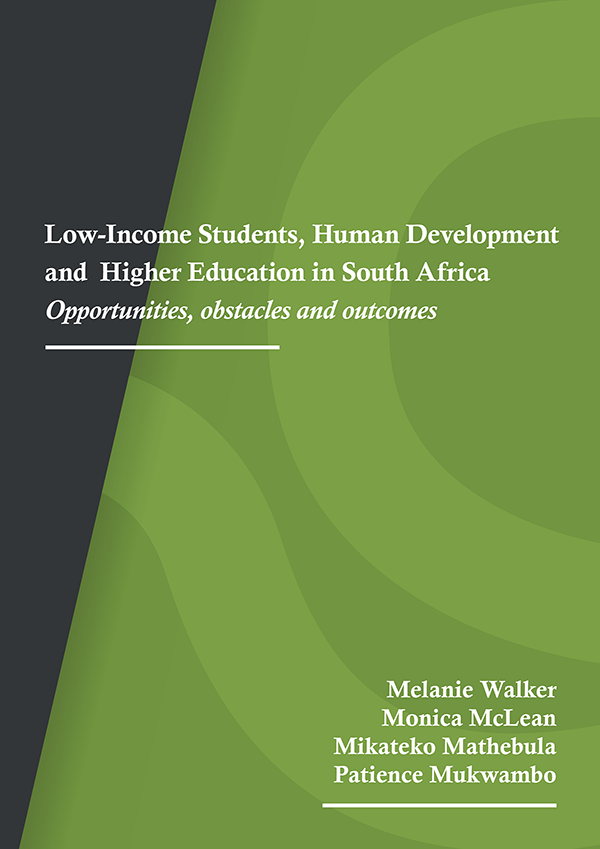
Author: Melanie Walker
Author: Monica McLean
Author: Mikateko Mathebula
Author: Patience Mukwambo
Cape Town: African Minds, 2022
March 2022
December 2021
Teaching and Learning for Change: Education and Sustainability in South Africa
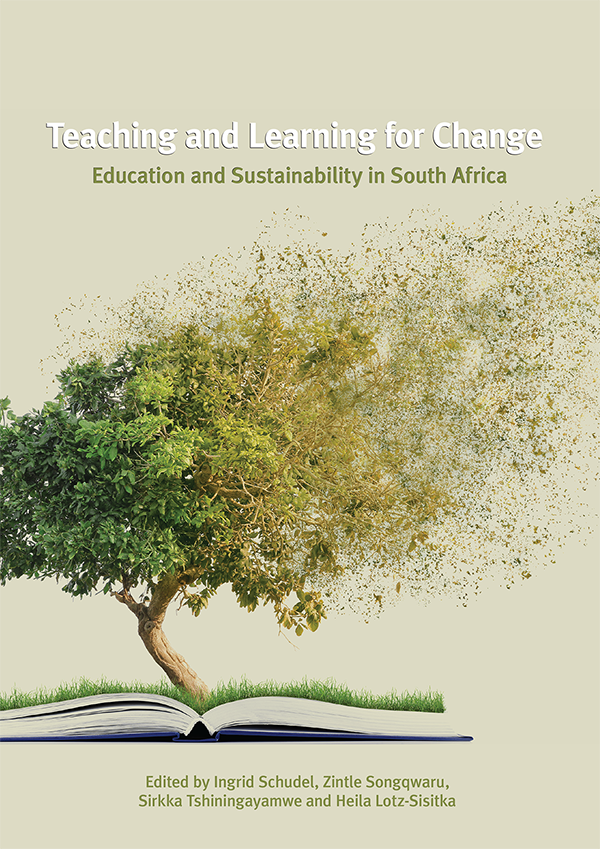
Editor: Ingrid Schudel
Editor: Zintle Songqwaru
Editor: Sirkka Tshiningayamwe
Editor: Heila Lotz-Sisitka
Cape Town: African Minds, 2021
August 2021
Democracy and the Discourse on Relevance Within the Academic Profession at Makerere University
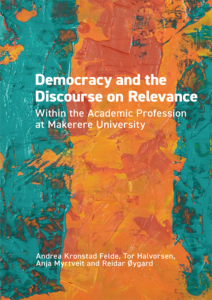
Author: Andrea Kronstad Felde
Author: Tor Halvorsen
Author: Anja Myrtveit
Cape Town: African Minds, 2021
https://doi.org/10.47622/9781928502272
Democracy and the Discourse of Relevance is set against the backdrop of the spread of neoliberal ideas and reforms since the 1980s, accepting also that these ideas are rooted in a longer history. It focuses on how neoliberalism has worked to transform the university sector and the academic profession. In particular, it examines how understandings of, and control over, what constitutes relevant knowledge have changed.
Taken as a whole, these changes have sought to reorient universities and academics towards economic development in various ways. This includes the installation of strategies for how institutions and academics achieve recognition and status within the academy, the privatisation of educational services and the downgrading of the value of public higher education, as well as a steady shift away from the public funding for universities. Research universities are increasingly adopting a user- and market-oriented model, with an emphasis on meeting corporate demands, the privileging of short-term research, and a strong tendency to view utility, and the potential to sell intellectual property for profit, as primary criteria for determining the relevance of academic knowledge.
June 2021
Transformer l’excellence en recherche: Nouvelles idées des pays du Sud Global
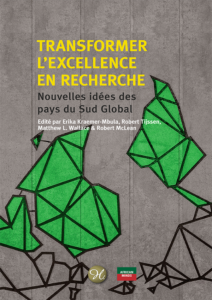
Editor: Matthew Wallace
Editor: Robert McLean
Editor: Erika Kraemer-Mbula
Editor: Robert Tijssen
Cape Town: African Minds, 2021
May 2021
The Politics of Housing in (Post-)Colonial Africa: Accommodating Workers & Urban Residents
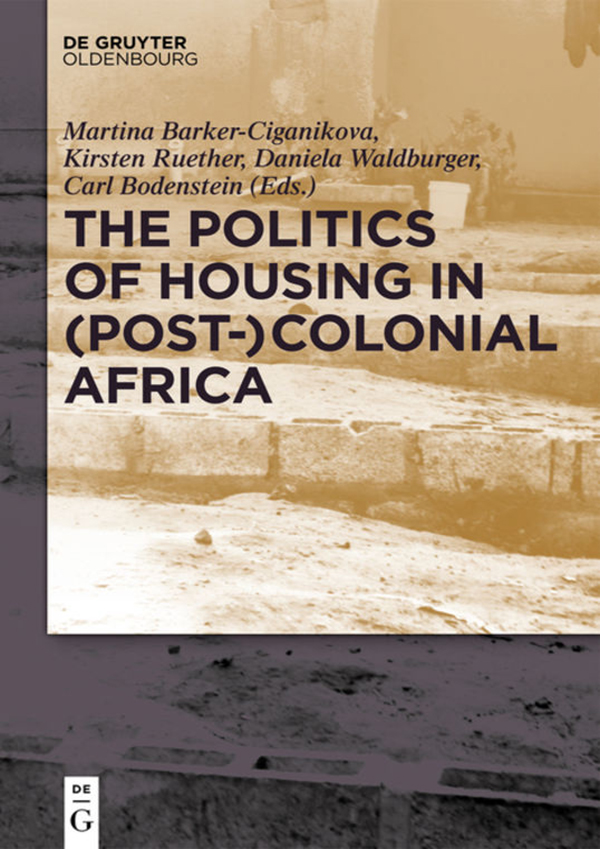
Editor: Kirsten Rüther
Editor: Martina Barker-Ciganikova
Editor: Daniela Waldburger
Editor: Carl-Philipp Bodenstein
Cape Town, South Africa: African Minds, 2021
January 2021
Refractions of the National, the Popular and the Global in African Cities
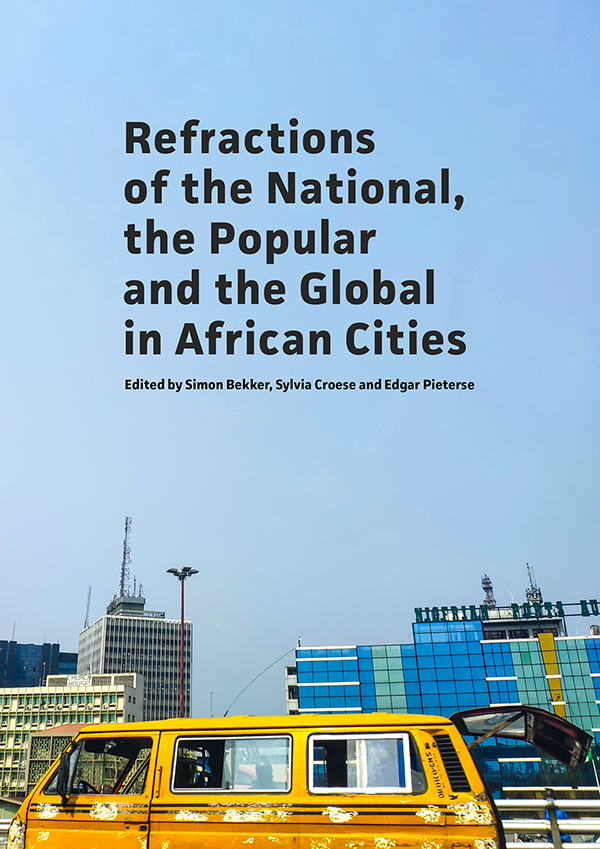
Editor: Simon Bekker
Editor: Sylvia Croese
Editor: Edgar Pieterse
Cape Town, South Africa: African Minds, 2021
September 2020
Situating Open Data: Global Trends in Local Contexts
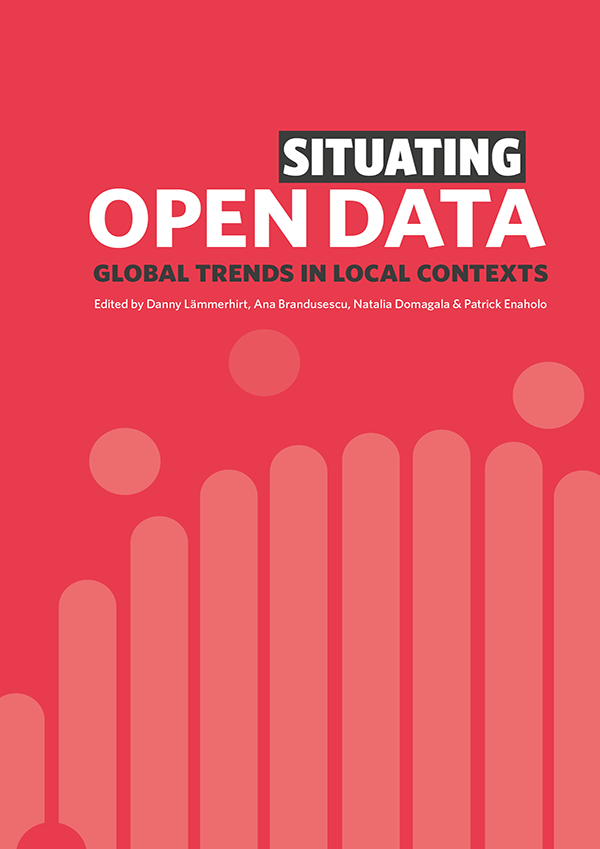
Editor: Danny Lämmerhirt
Editor: Ana Brandusescu
Editor: Natali a Domagala
Editor: Patrick Enaholo
Cape Town, South Africa: African Minds, 2020
From Memory to Marble Vol 2: The Historical Frieze of the Voortrekker Monument, Part II: The Scenes
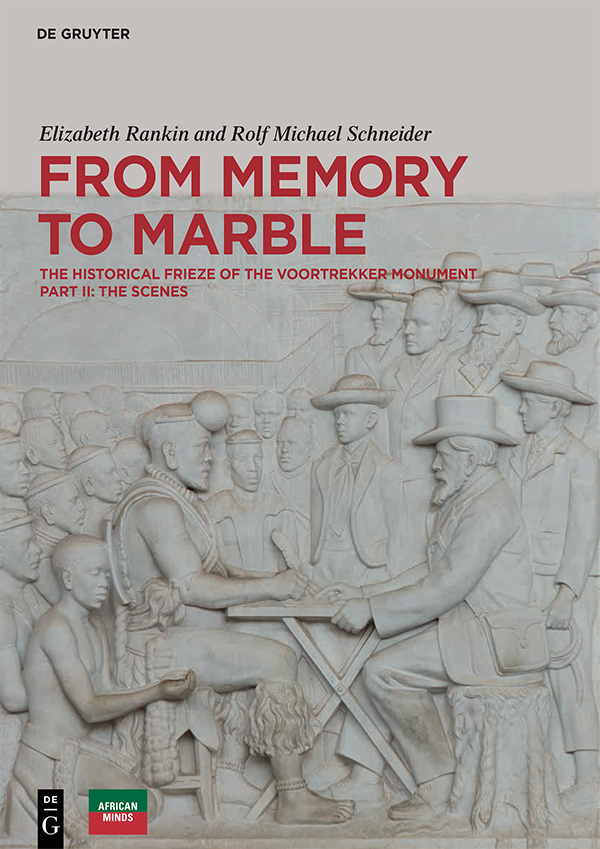
Author: Elizabeth Rankin
Author: Rolf Michael Schneider
Cape Town: African Minds, 2020
https://doi.org/10.1515/9783110668797
The Voortrekker Monumentality digital archive hosted by Stanford University Libraries is based on the eight-hundred-and-four illustrations from the two-volume book From Memory to Marble: The historical frieze of the Voortrekker Monument. It includes not only images of the monument and the frieze but also many related documents and artworks. The corpus aims to promote studies of controversial monuments, with a focus on visual interpretation.
For the first time the 92-metre frieze of the Voortrekker Monument in Pretoria, one of the largest historical narratives in marble, has been made the subject of a book.
The pictorial narrative of the Boer pioneers who conquered South Africa’s interior during the ‘Great Trek’ (1835-52) represents a crucial period of South Africa’s past. Forming the concept of the frieze both reflected on and contributed to the country’s socio-political debates in the 1930s and 1940s when it was made. The frieze is unique in that it provides rare evidence of the complex processes followed in creating a major monument.
Based on unpublished documents, drawings and models, these processes are unfolded step by step, from the earliest discussions of the purpose and content of the frieze through all the stages of its design to its shipping to post-war Italy to be copied into marble and final installation in the Monument. The book examines how visual representation transforms historical memory in what it chooses to recount, and the forms in which it depicts this. It also investigates the active role the Monument played in the development of apartheid, and its place in post-apartheid heritage.
This second volume expands on the first, considering each of the 27 scenes in depth, providing new insights into not only the frieze, but also South Africa’s history.
June 2020
The Artistry of Bheki Mseleku
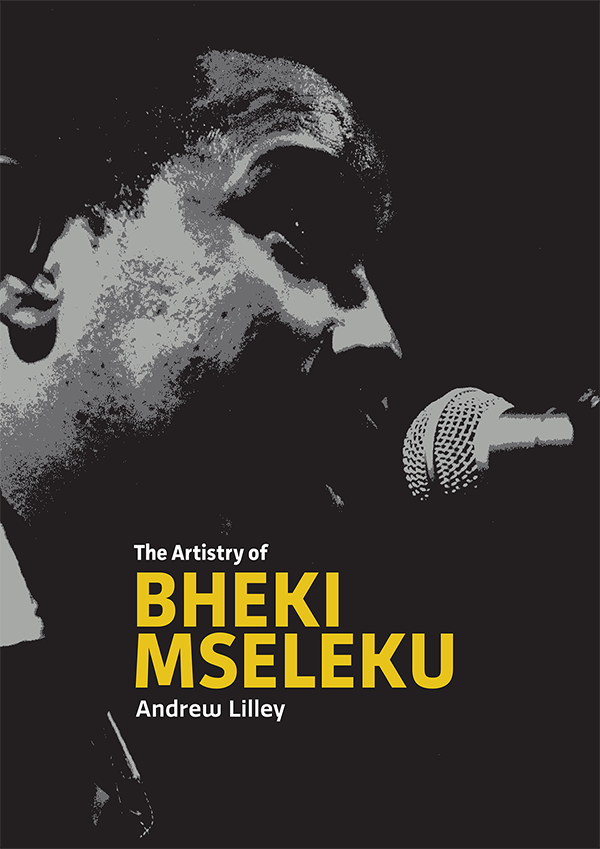
Author: Andrew Lilley
Cape Town: African Minds, 2020
https://doi.org/10.47622/9781928331667
Bheki Mseleku is widely regarded as one of the most gifted, technically accomplished and emotionally expressive jazz musicians to have emerged from South Africa. His individualistic and eclectic sound draws on American, classical and township influences. He had no apparent formal music training and grew up in a poor village on the outskirts of Durban where, at the fairly late age of seventeen, he discovered that he had an innate ability to play. He has become a key inspiration for aspiring young South African jazz musicians and has left an infinite source of knowledge to draw on.
The Artistry of Bheki Mseleku is an in-depth study of the Mseleku’s compositional works and improvisational style. The annotated transcriptions and analysis bring into focus the exquisite skill and artistry that ultimately caught the eye of some of the most celebrated international jazz musicians in the world.
“Despite being entirely self-taught, Mseleku was the most technically sophisticated of jazz musicians, though the abiding experience of hearing him play was one of an unjazzlike simplicity.” – John Fordham, The Guardian
March 2020
Reflections of South African Student Leaders: 1994 to 2017
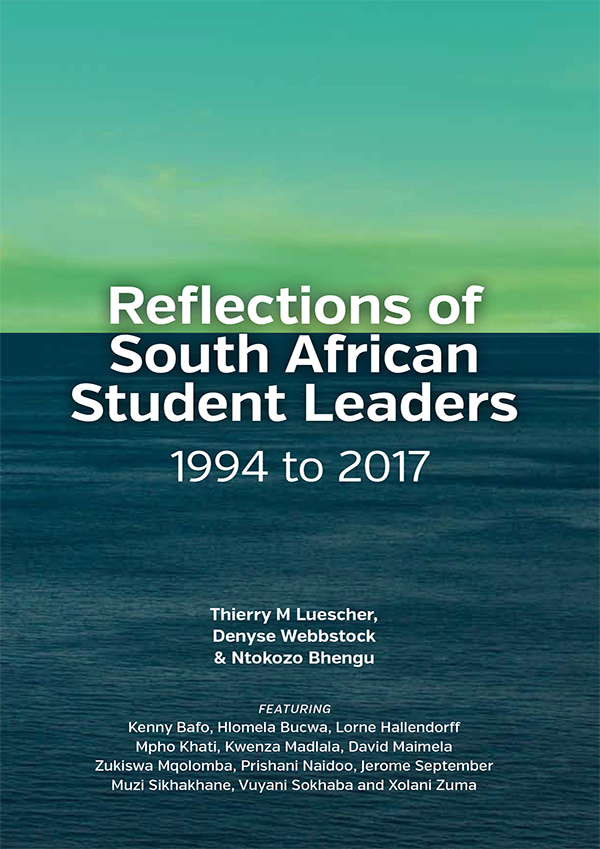
Editor: Thierry Luescher
Editor: Denyse Webbstock
Editor: Ntokozo Bhengu
Cape Town, South Africa: African Minds, 2020
February 2020
From Memory to Marble Vol 1: The Historical Frieze of the Voortrekker Monument, Part I: The Frieze
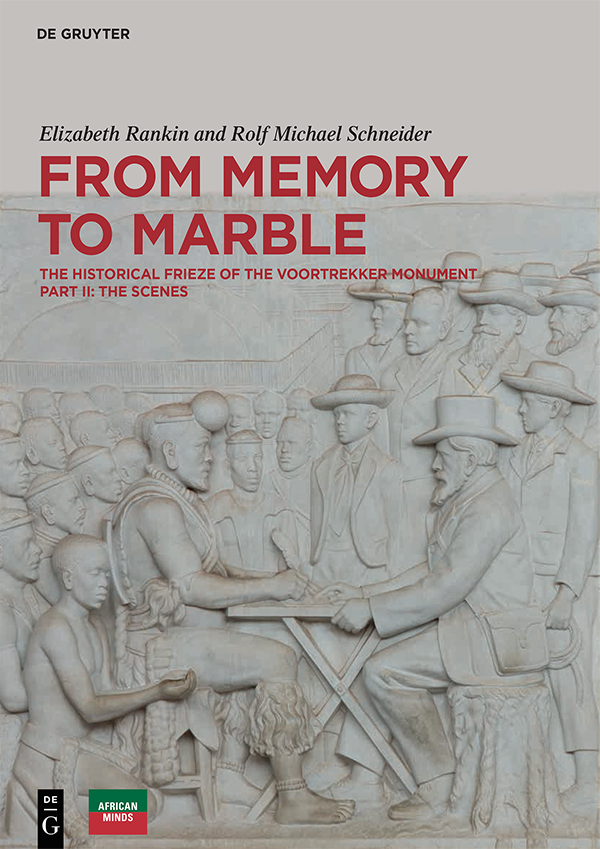
Author: Elizabeth Rankin
Author: Rolf Michael Schneider
Cape Town: African Minds, 2020
January 2020
Transforming Research Excellence: New Ideas from the Global South
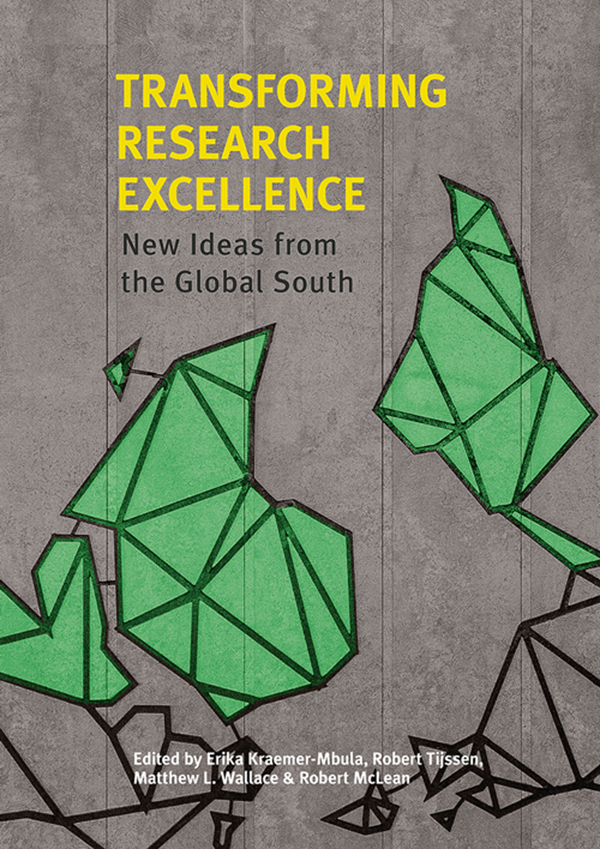
Editor: Erika Kraemer-Mbula
Editor: Robert Tijssen
Editor: Matthew Wallace
Editor: Robert McLean
Cape Town, South Africa: African Minds, 2020
November 2019
Science Communication in South Africa: Reflections on Current Issues
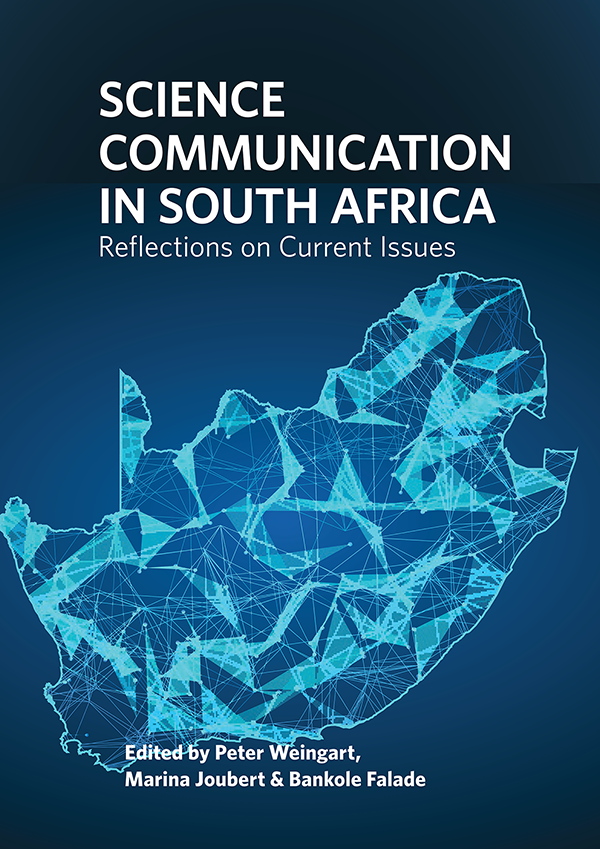
Editor: Peter Weingart
Editor: Marina Joubert
Editor: Bankole Falade
Cape Town, South Africa: African Minds, 2019
October 2019
Ubushakashatsi: mu Bumenyi Nyamuntu n’Imibanire y’Abantu
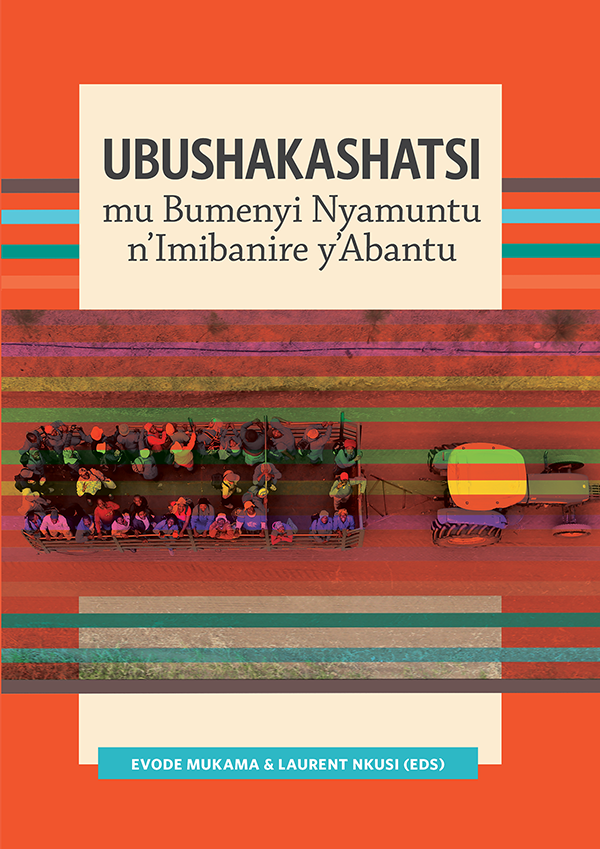
Editor: Evode Mukama
Editor: Laurent Nkusi
Cape Town, South Africa: African Minds, 2019
May 2019
The State of Open Data: Histories and Horizons

Editor: Tim Davies
Editor: Mor Rubinstein
Editor: Fernando Perini
Cape Town, South Africa: African Minds, 2019
March 2019
African Markets and the Utu-buntu Business Model: A Perspective in Economic Informality in Nairobi
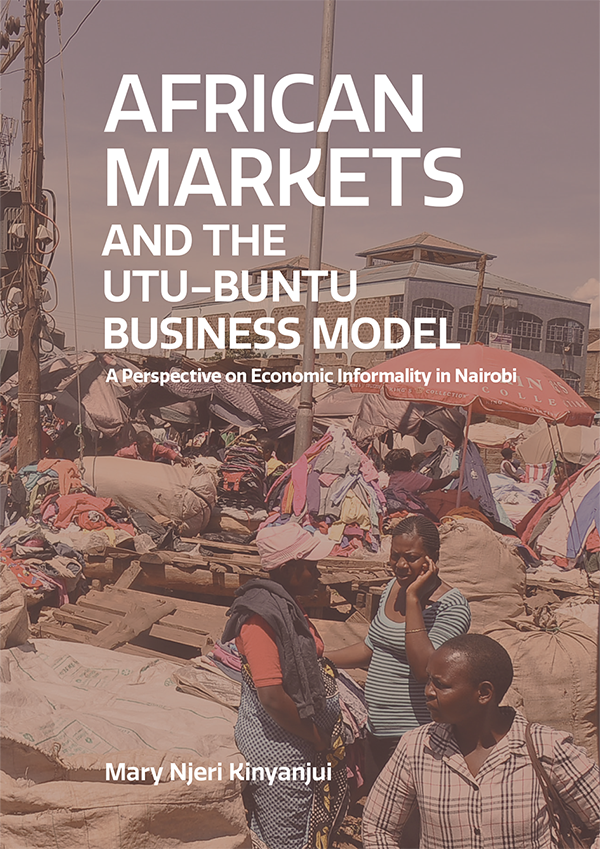
Author: Mary Njeri Kinyanjui
Cape Town: African Minds, 2019
https://doi.org/10.47622/9781928331780
The persistence of indigenous African markets in the context of a hostile or neglectful business and policy environment makes them worthy of analysis. An investigation of Afrocentric business ethics is long overdue. Attempting to understand the actions and efforts of informal traders and artisans from their own points of view, and analysing how they organise and get by, allows for viable approaches to be identified to integrate them into global urban models and cultures.
December 2018
Higher Education Pathways: South African Undergraduate Education and the Public Good
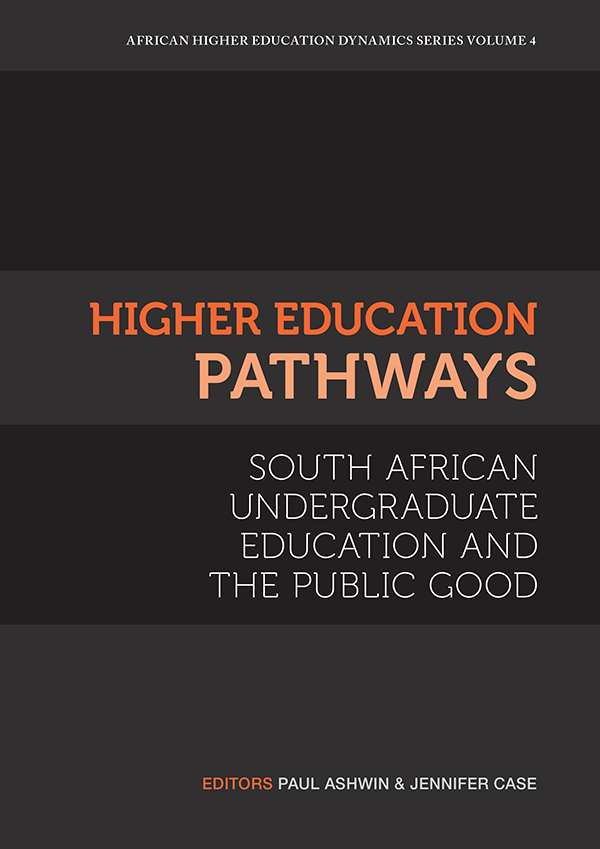
Editor: Paul Ashwin
Editor: Jennifer Case
Cape Town: African Minds, 2018
November 2018
The Next Generation of Scientists in Africa
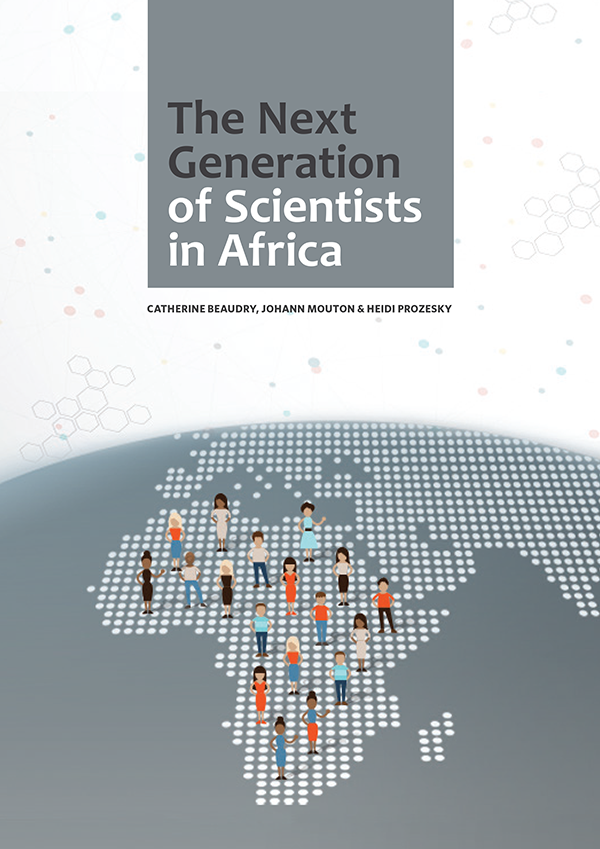
Author: Catherine Beaudry
Author: Johann Mouton
Author: Heidi Prozesky
Cape Town, South Africa: African Minds, 2018
Research Universities in Africa
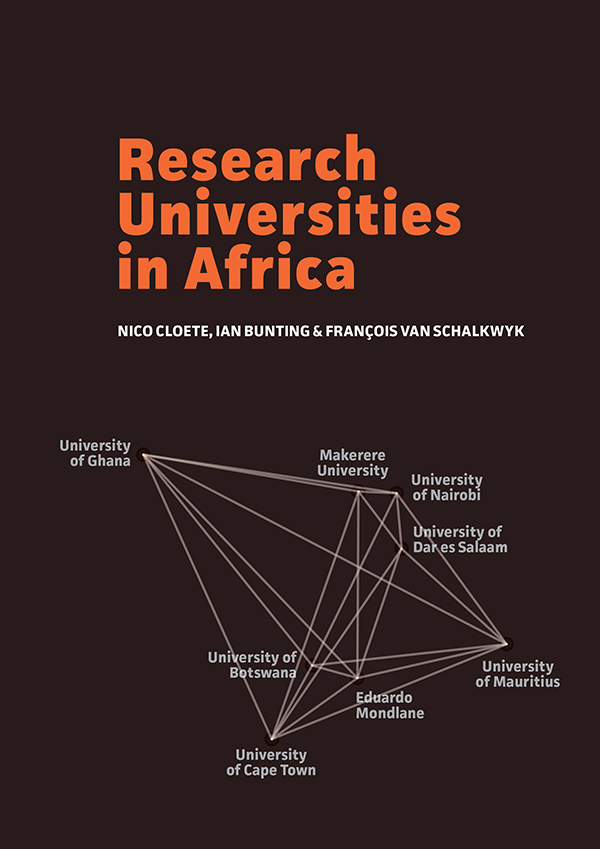
Author: Nico Cloete
Author: Ian Bunting
Author: Francois van Schalkwyk
Cape Town, South Africa: African Minds, 2018
October 2018
Anchored in Place: Rethinking the University and Development in South Africa
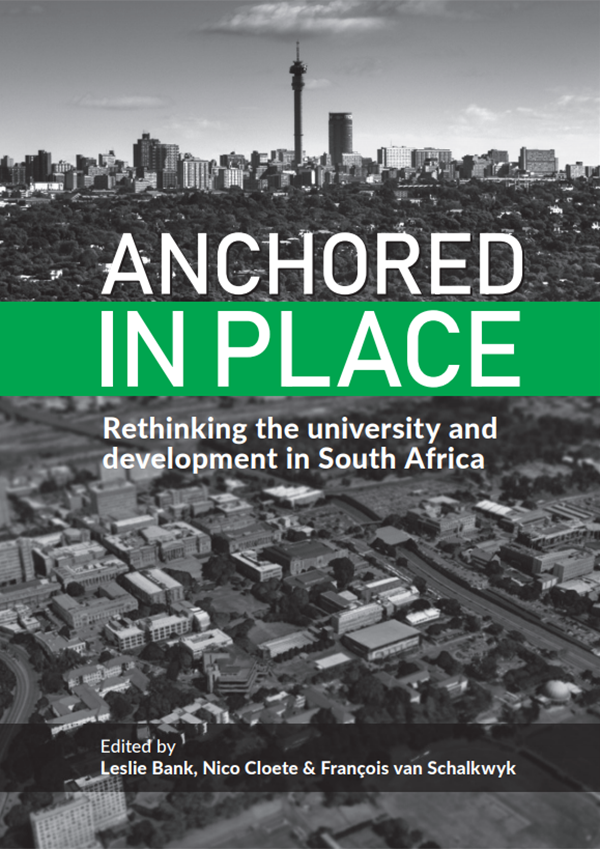
Editor: Nico Cloete
Editor: Francois van Schalkwyk
Editor: Leslie Bank
Cape Town, South Africa: African Minds, 2018
https://doi.org/10.47622/9781928331759
Tensions in South African universities have traditionally centred around equity (particularly access and affordability), historical legacies (such as apartheid and colonialism), and the shape and structure of the higher education system. What has not received sufficient attention, is the contribution of the university to place-based development.
This volume is the first in South Africa to engage seriously with the place-based developmental role of universities. In the international literature and policy there has been an increasing integration of the university with place-based development, especially in cities. This volume weighs in on the debate by drawing attention to the place-based roles and agency of South African universities in their local towns and cities. It acknowledges that universities were given specific development roles in regions, homelands and towns under apartheid, and comments on why sub-national, place-based development has not been a key theme in post-apartheid, higher education planning.
February 2018
Going to University: The Influence of Higher Education on the Lives of Young South Africans
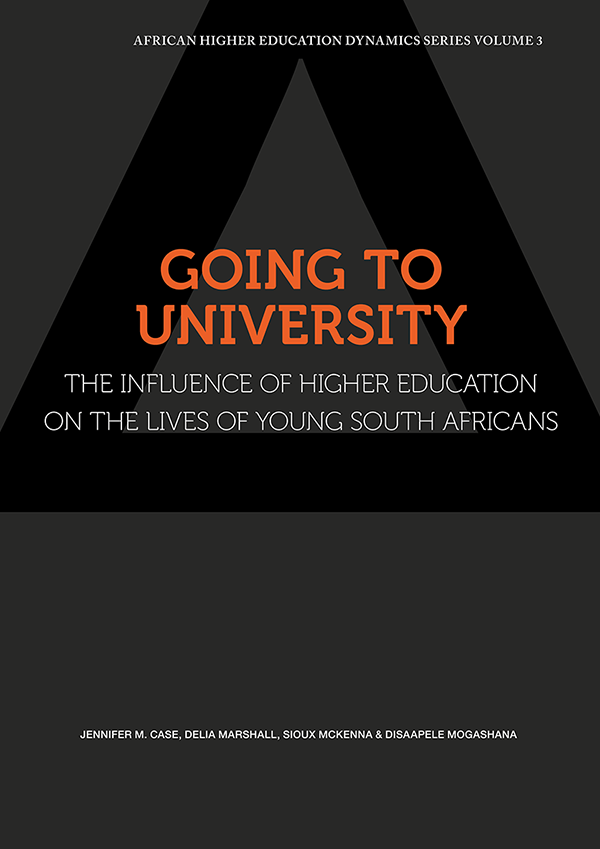
Author: Sioux McKenna
Author: Disaapele Mogashana
Author: Jennifer Case
Author: Delia Marshall
Cape Town, South Africa: African Minds, 2018
December 2017
Adoption and Impact of OER in the Global South
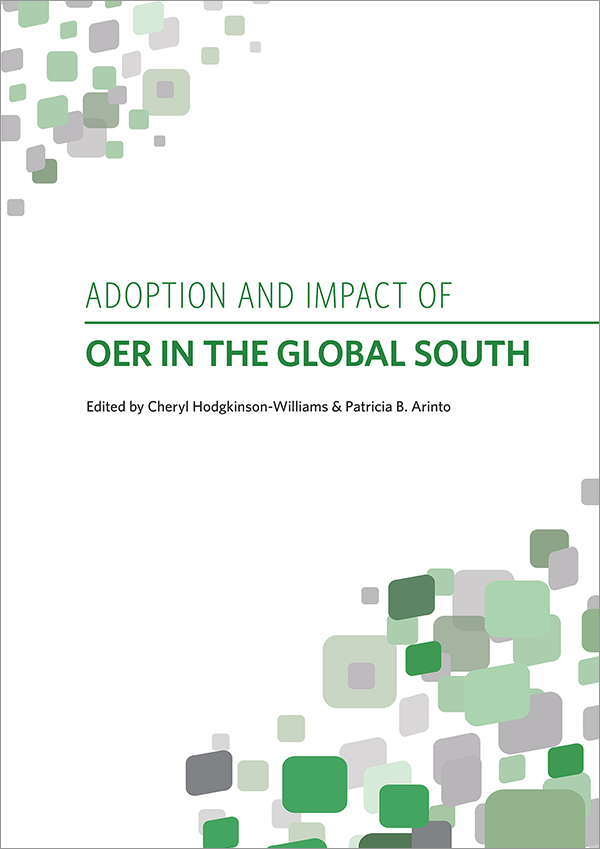
Editor: Cheryl Hodgkinson-Williams
Editor: Patricia Arinto
Cape Town: African Minds, 2017
https://doi.org/10.47622/9781928331483
Education in the Global South faces several key interrelated challenges, for which Open Educational Resources (OER) are seen to be part of the solution. These challenges include: unequal access to education; variable quality of educational resources, teaching, and student performance; and increasing cost and concern about the sustainability of education. The Research on Open Educational Resources for Development (ROER4D) project seeks to build on and contribute to the body of research on how OER can help to improve access, enhance quality and reduce the cost of education in the Global South. This volume examines aspects of educator and student adoption of OER and engagement in Open Educational Practices (OEP) in secondary and tertiary education as well as teacher professional development in 21 countries in South America, Sub-Saharan Africa and South and Southeast Asia. The ROER4D studies and syntheses presented here aim to help inform Open Education advocacy, policy, practice and research in developing countries.
North-South Knowledge Networks: Towards Equitable Collaboration Between Academics, Donors and Universities
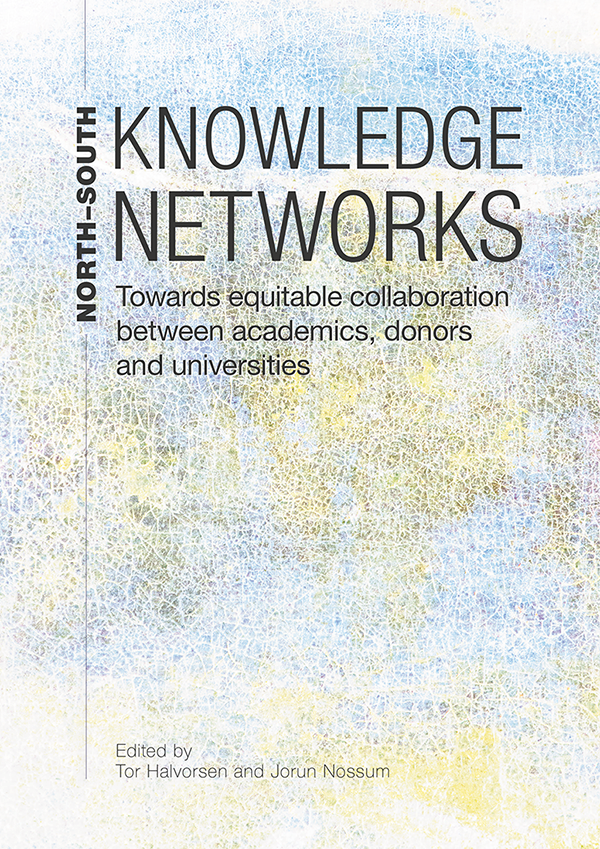
Editor: Tor Halvorsen
Editor: Jorun Nossum
Cape Town: African Minds, 2017
https://doi.org/10.47622/9781928331308
Since the 1990s, internationalisation has become key for institutions wishing to secure funding for higher education and research. For the academic community, this strategic shift has had many consequences. Priorities have changed and been influenced by new ways of thinking about universities, and of measuring their impact in relation to each other and to their social goals. Debates are ongoing and hotly contested.
November 2017
Open Data in Developing Economies: Toward Building an Evidence Base on What Works and How
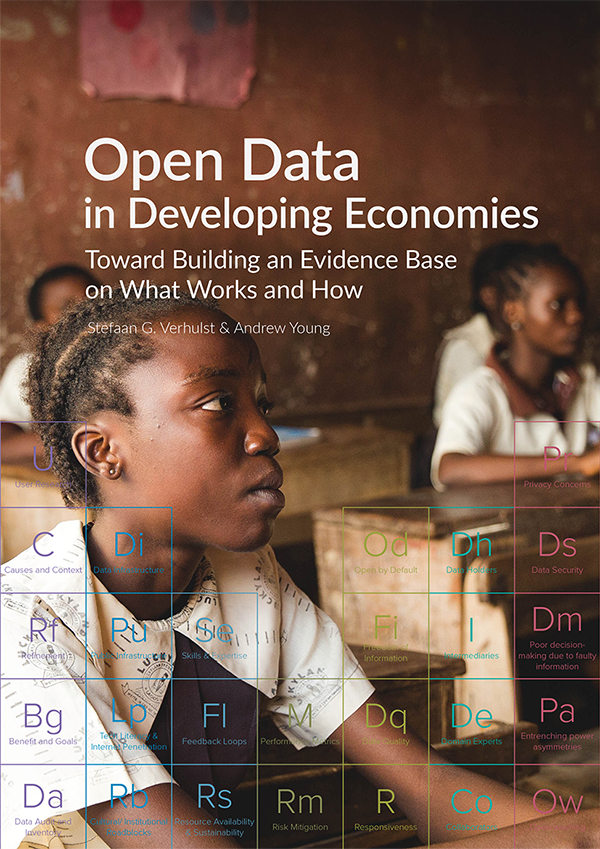
Author: Stefaan Verhulst
Author: Andrew Young
Cape Town: African Minds, 2017
https://doi.org/10.47622/9781928331599
Recent years have witnessed considerable speculation about the potential of open data to bring about wide-scale transformation. The bulk of existing evidence about the impact of open data, however, focuses on high-income countries. Much less is known about open data’s role and value in low- and middle-income countries, and more generally about its possible contributions to economic and social development.
Open Data for Developing Economies features in-depth case studies on how open data is having an impact across the developing world-from an agriculture initiative in Colombia to data-driven healthcare projects in Uganda and South Africa to crisis response in Nepal. The analysis built on these case studies aims to create actionable intelligence regarding: (a) the conditions under which open data is most (and least) effective in development, presented in the form of a Periodic Table of Open Data; (b) strategies to maximize the positive contributions of open data to development; and (c) the means for limiting open data’s harms on developing countries.
October 2017
Knowledge for Justice: Critical Perspectives from Southern African-Nordic Research Partnerships
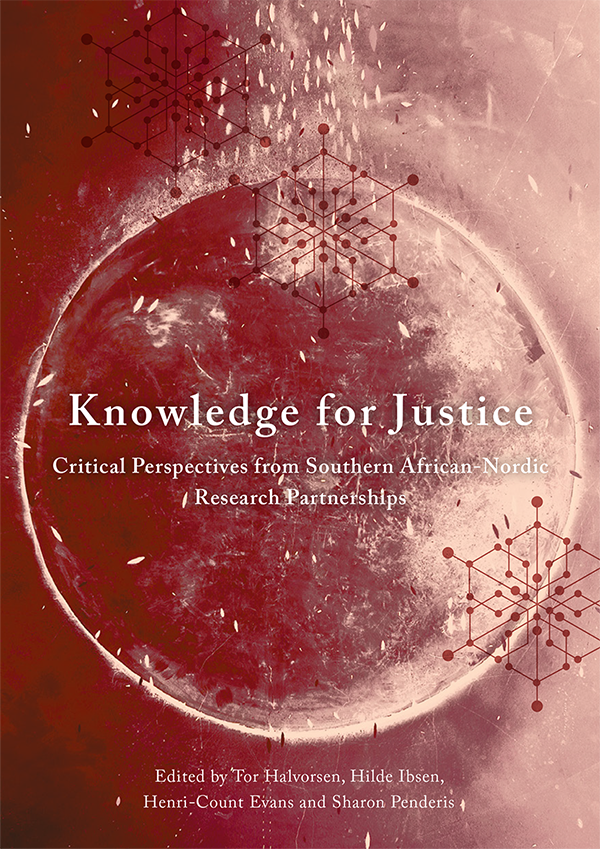
Editor: Tor Halvorsen
Editor: Hilde Ibsen
Editor: Sharon Penderis
Editor: Henri-Count Evans
Cape Town: African Minds, 2017
https://doi.org/10.47622/9781928331636
With the adoption of the United Nations Sustainable Development Goals (SDGs) and the Paris Agreement, the purpose of development is being redefined in both social and environmental terms. Despite pushback from conservative forces, change is accelerating in many sectors. To drive this transformation in ways that bring about social, environmental and economic justice at a local, national, regional and global levels, new knowledge and strong cross-regional networks capable of foregrounding different realities, needs and agendas will be essential. In fact, the power of knowledge matters today in ways that humanity has probably never experienced before, placing an emphasis on the roles of research, academics and universities.
September 2017
The Future of Scholarly Publishing: Open Access and the Economics of Digitisation
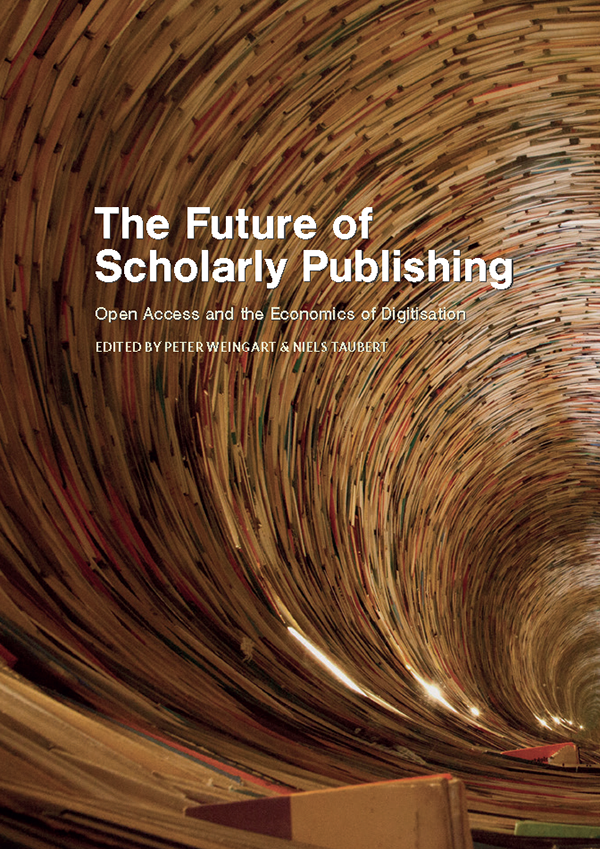
Editor: Peter Weingart
Editor: Niels Taubert
Cape Town, South Africa: African Minds, 2017
July 2017
La Jurisprudence Congolaise en Matière de Crimes de Droit International: Une Analyse des Décisions des Juridictions Militaires Congolaises en Application du Statut de Rome
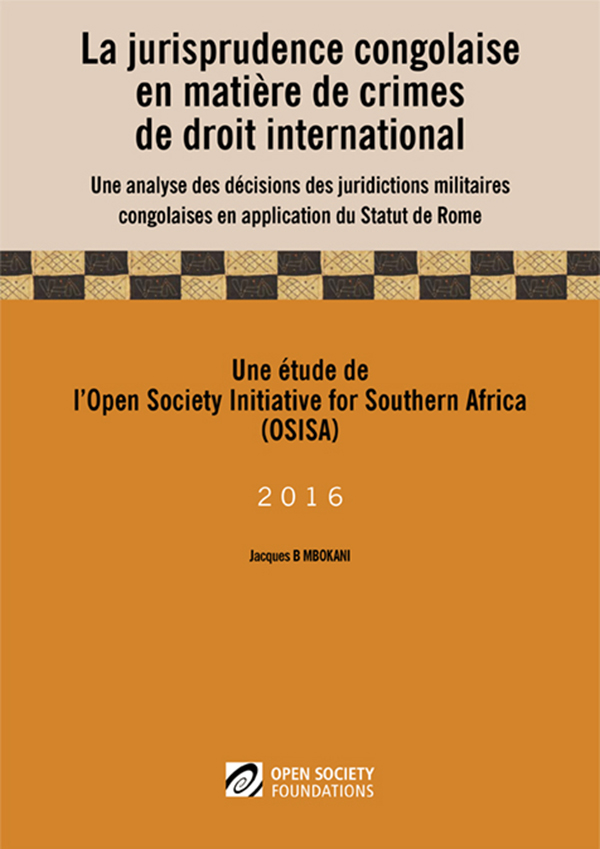
Author: Jacques B Mbokani
Cape Town: African Minds, 2017
Organes de gestion des élections en Afrique de l’ouest: Une étude comparative de la contribution des commissions électorales au renforcement de la démocratie
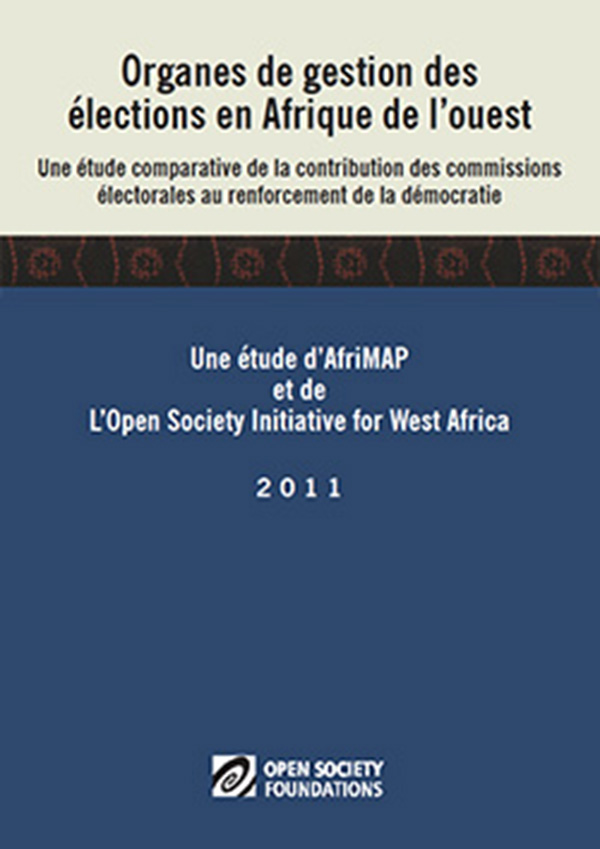
Editor: Ismaila Fall
Editor: Mathias Hounkpe
Editor: Adele Jinadu
Editor: Pascal Kambale
Cape Town: African Minds, 2017
https://doi.org/10.47622/9781920489175
Ce rapport est une cartographie exhaustive des commissions électorales dans six pays de la région ouest africaine (Bénin, Cap-Vert, Ghana, Nigeria, Sénégal et Sierra-Léone) dont l’objectif est d’évaluer leur contribution au renforcement de la démocratie participative dans la région. Comme institutions de mise en oeuvre des règles du jeu électoral, les organes de gestion des élections (OGE) ont occupé au cours des deux dernières décennies le centre des discussions et de la pratique sur la question cruciale de la participation effective des citoyens aux affaires publiques de leur pays. Les modes de leur création et les règles de leur fonctionnement effectif n’ont cessé de préoccuper les protagonistes des compétitions électorales et d’occuper le centre des réformes politiques.
L’étude Organes de gestion des élections en Afrique de l’ouest répond donc à un besoin évident d’éclairage sur une institution qui occupe une place de plus en plus centrale dans les processus politiques en Afrique de l’Ouest. Basée sur une recherche documentaire approfondie et des entretiens détaillés menés dans chaque pays, l’étude propose une analyse comparative des OGE qui dégage les ressemblances et dissemblances dans leurs formes comme dans leurs fonctionnements tout en essayant de mettre en exergue les logiques qui fondent leurs succès et leurs limites.
Effectivité des Agences Nationales Anti-Corruption en Afrique de L’ouest: Bénin, Libéria, Niger, Nigéria, Sénégal, Sierra Leone
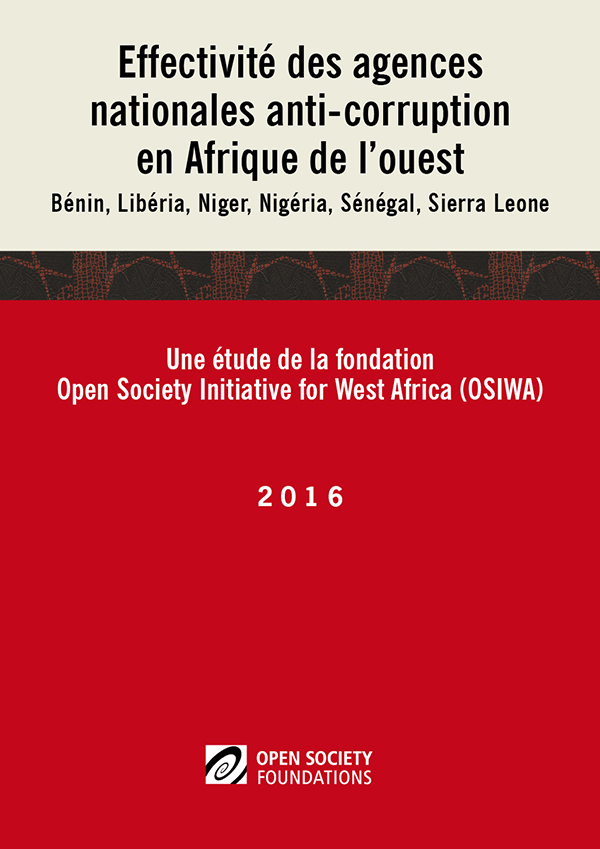
Editor: Open Society Initiative for West Africa
Cape Town: African Minds, 2017
April 2017
Election Management Bodies in Southern Africa: Comparative Study of the Electoral Commissions Contribution to Electoral Processes
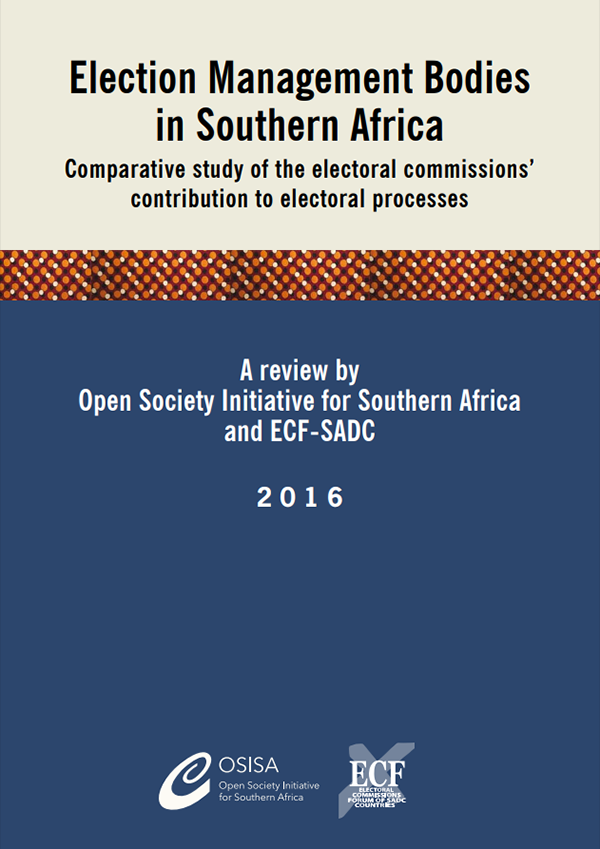
Editor: Open Society Initiative for Southern Africa (OSISA)
Cape Town: African Minds, 2017
Effectiveness of Anti-Corruption Agencies in Southern Africa: Angola, Botswana, DRC, Lesotho, Malawi, Mozambique, Namibia, South Africa, Swaziland, Zambia and Zimbabwe
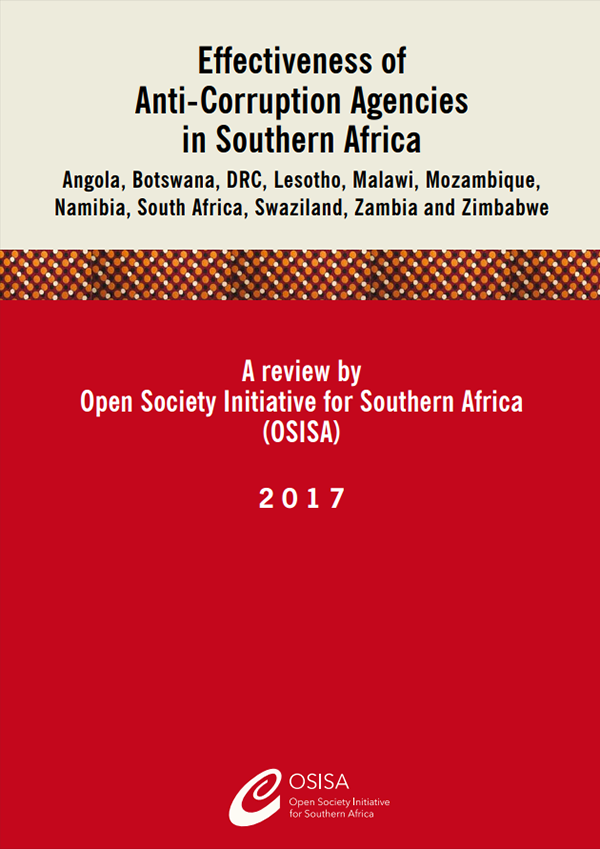
Editor: Open Society Initiative for Southern Africa (OSISA)
Cape Town: African Minds, 2017
October 2016
Cape Town Harmonies: Memory, Humour and Resilience

Author: Armelle Gaulier
Author: Denis-Constant Martin
Cape Town: African Minds, 2016
The Delusion of Knowledge Transfer: The Impact of Foreign Aid Experts on Policy-making in South Africa and Tanzania
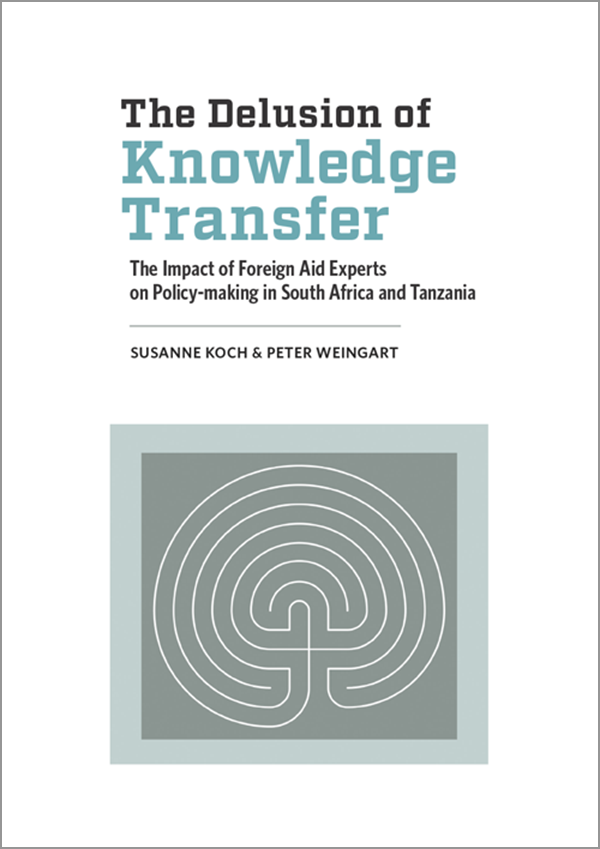
Author: Susanne Koch
Author: Peter Weingart
Cape Town, South Africa: African Minds, 2016
June 2016
Change Management in TVET Colleges: Lessons Learnt from the Field of Practice
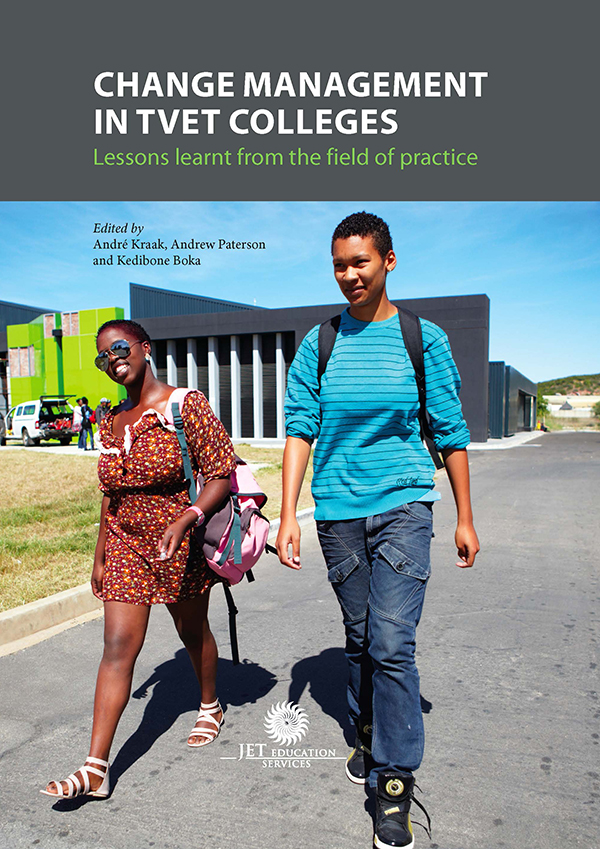
Editor: André Kraak
Editor: Andrew Paterson
Editor: Kedibone Bok
Cape Town, South Africa: African Minds, 2016
May 2016
Election Management Bodies in West Africa: A Comparative Study of the Contribution of Electoral Commissions to the Strengthening of Democracy
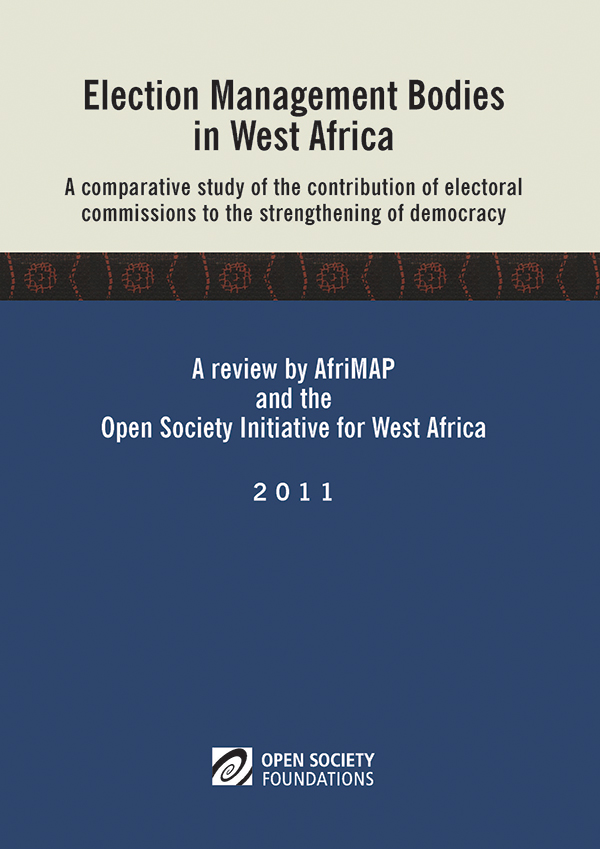
Author: Ismaila Fall
Author: Mathias Hounkpe
Author: Adele Jinadu
Author: Pascal Kambale
Cape Town, South Africa: African Minds, 2016
One World, Many Knowledges: Regional Experiences and Cross-regional Links in Higher Education
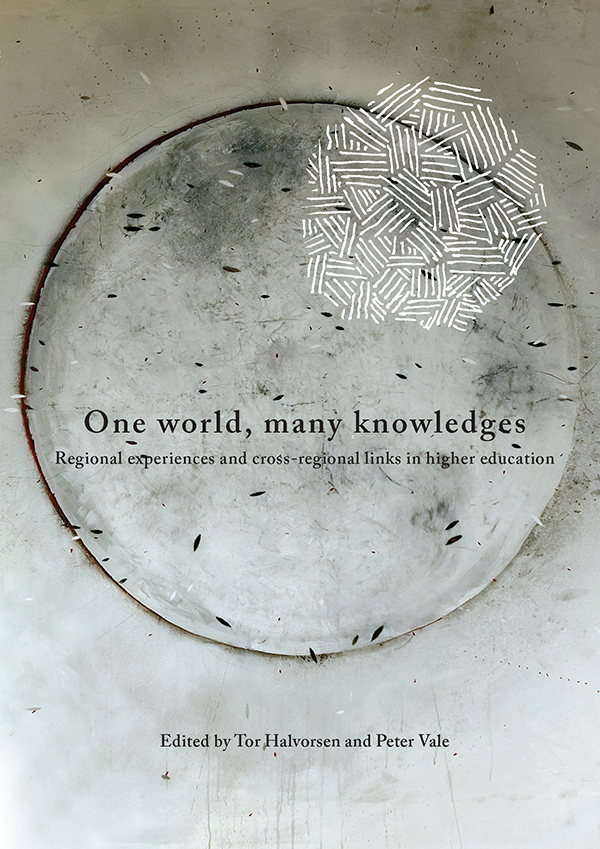
Editor: Peter Vale
Editor: Tor Halvorsen
Cape Town, South Africa: African Minds, 2016
Castells in Africa: Universities and Development
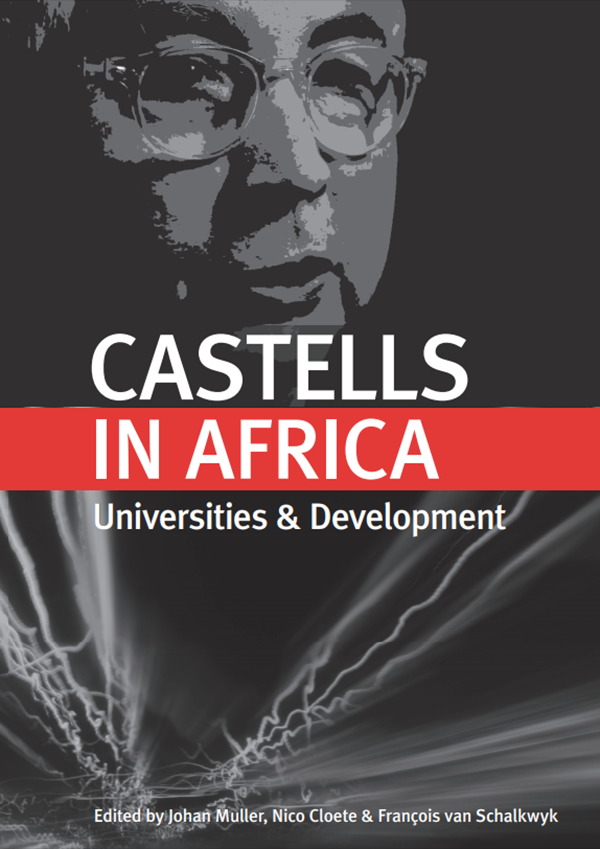
Author: Nico Cloete
Author: Johan Muller
Author: Francois van Schalkwyk
Cape Town, South Africa: African Minds, 2016
Moçambique Como Lugar de Interrogação: A Modernidade em Elísio Macamo e Severino Ngoenha
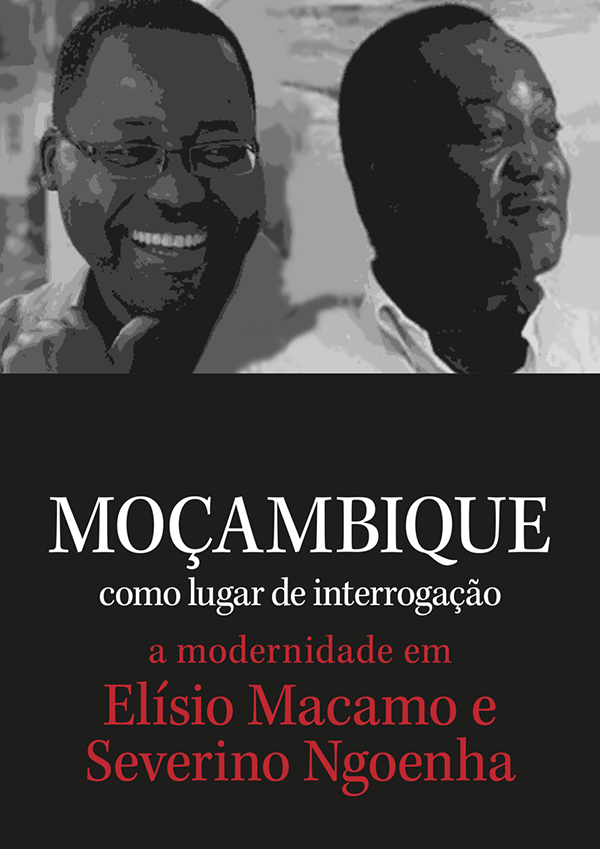
Author: Paula Sophia Branco de Lima
Cape Town: African Minds, 2016
March 2016
Student Politics in Africa: Representation and Activism
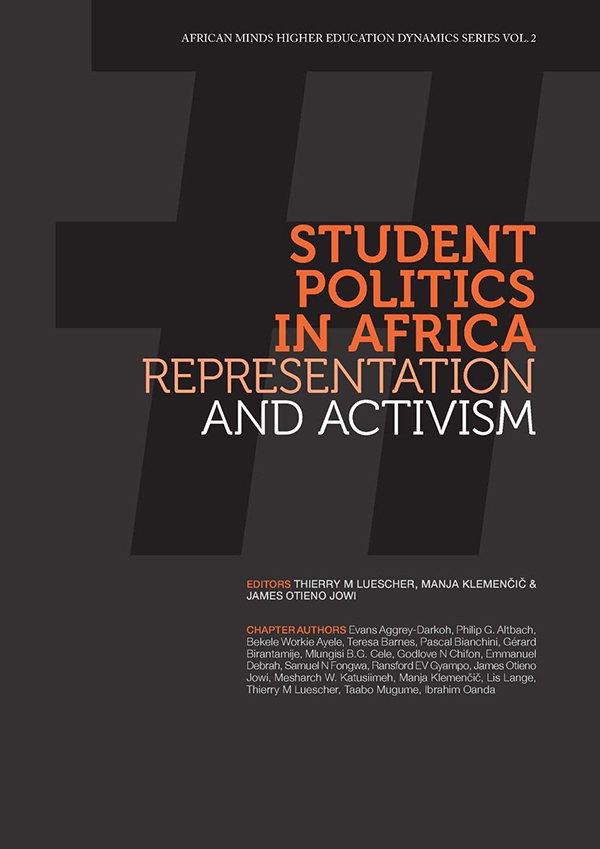
Editor: Thierry Luescher
Editor: James Otieno Jowi
Editor: Manja Klemencic
Cape Town: African Minds, 2016
https://doi.org/10.47622/9781928331223
Student Politics in Africa: Representation and Activism By Thierry M Luescher, Manja Klemenčič & James Otieno Jowi
The second volume of the African Higher Education Dynamics Series brings together the research of an international network of higher education scholars with interest in higher education and student politics in Africa. Most authors are early career academics who teach and conduct research in universities across the continent and came together for a research project, and related workshops and a symposium on student representation in African higher education governance.
The book includes theoretical chapters on student organising, student activism and representation; chapters on historical and current developments in student politics in Anglophone and Francophone Africa, and in-depth case studies on student representation and activism in a cross-section of universities and countries.
The book provides a unique resource for academics, university leaders and student affairs professionals as well as student leaders and policy-makers in Africa and elsewhere.
Reflections of South African University Leaders: 1981 to 2014
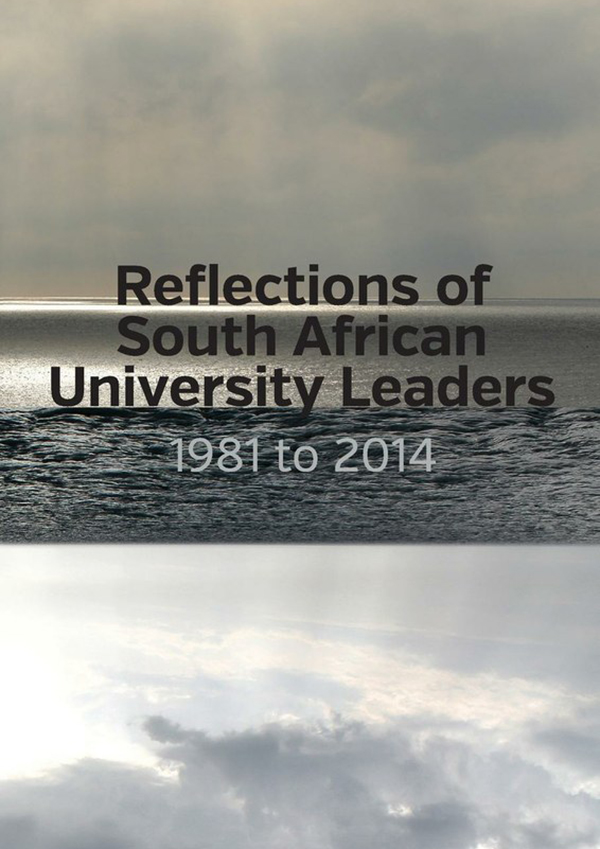
Editor: Council on Higher Education
Cape Town: African Minds, 2016
https://doi.org/10.47622/9781928331094
The inspiration for this collection arose in late 2013 in the Council on Higher Education’s (CHE) Monitoring and Evaluation Directorate, the directorate responsible for conducting research on the higher education landscape and monitoring the state of the sector over time. They noted that conditions besetting universities had grown increasingly complex, both globally but more especially locally, and the question arose – how had this altered the challenges to university leadership over the period, say, between the new political dispensation ushered in in 1994 and the second decade of the new millennium? More particularly, how had leaders with a proven track record of visionary and strong leadership during this period faced these challenges? How did they see the main changes that needed dealing with? What challenges did these changes pose and how were they successfully overcome? What did they think, looking back, were the main constituents of successful leadership and management? What wisdom could be distilled for posterity? The Directorate decided to invite a range of vice-chancellors and senior academic leaders who had completed their terms of office to contribute to a project that set out to gather such reflections and compile them into a publication.
February 2016
Election Management Bodies in East Africa: A Comparative Study of the Contribution of Electoral Commissions to the Strengthening of Democracy
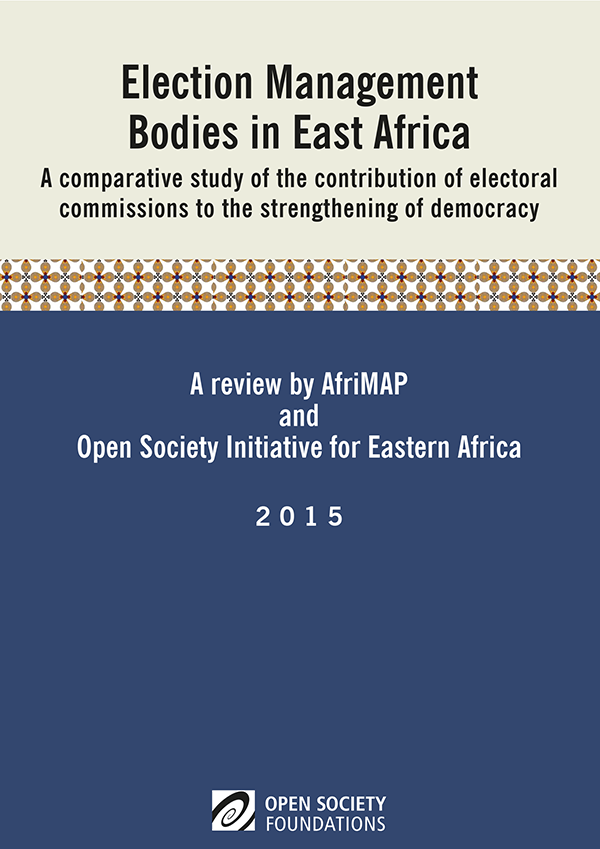
Author: Alexander Makulilo
Author: Eugène Ntaganda
Author: Francis Away
Author: Margaret Sekaggya
Author: Patrick Osodo
Cape Town, South Africa: African Minds, 2016
January 2016
The Civil Society Guide to Regional Economic Communities in Africa
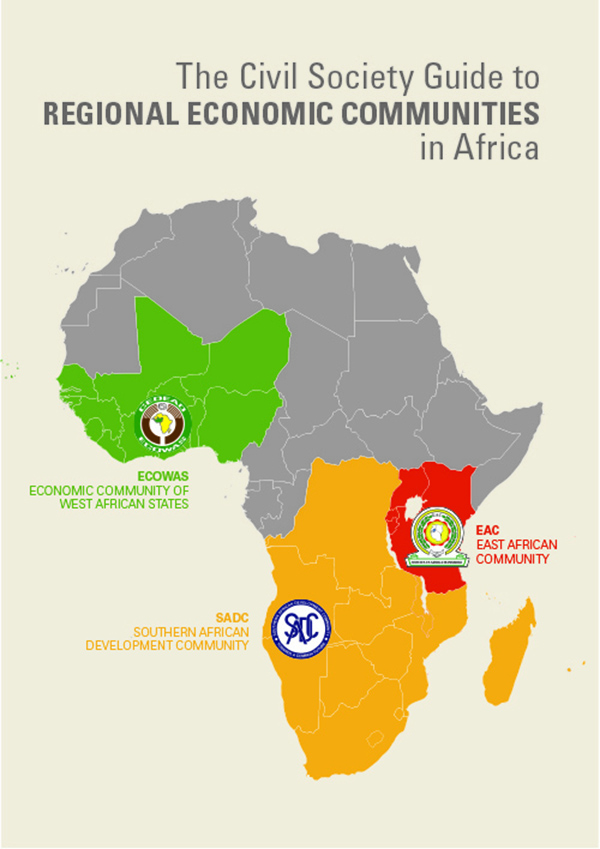
Author: Morris Odhiambo
Author: Rudy Chitiga
Author: Solomon Ebobrah
Cape Town, South Africa: African Minds, 2016
Effectiveness of Anti-Corruption Agencies in East Africa: Kenya, Tanzania and Uganda
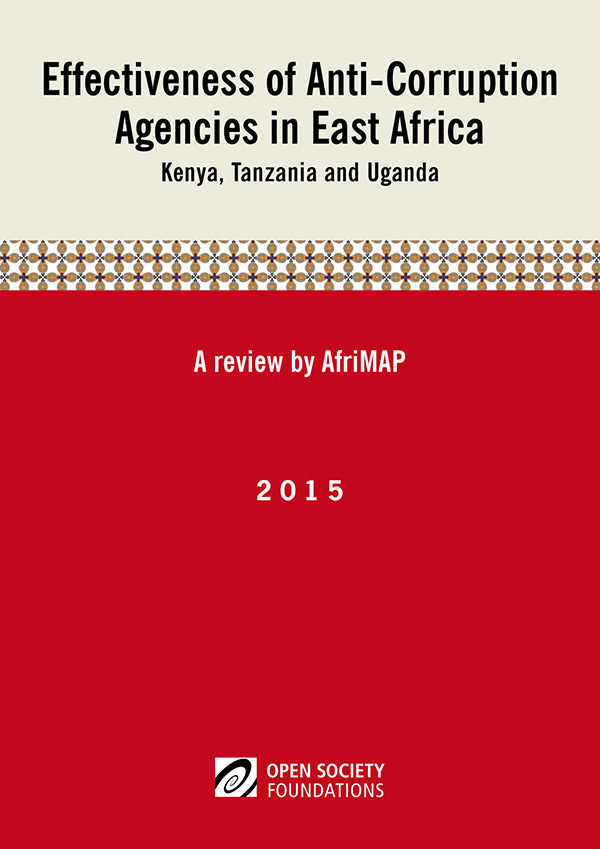
Author: Open Society Initiative for Southern Africa (OSISA
Cape Town, South Africa: African Minds, 2016
Citizenship Law in Africa: A Comparative Study (3rd edition)
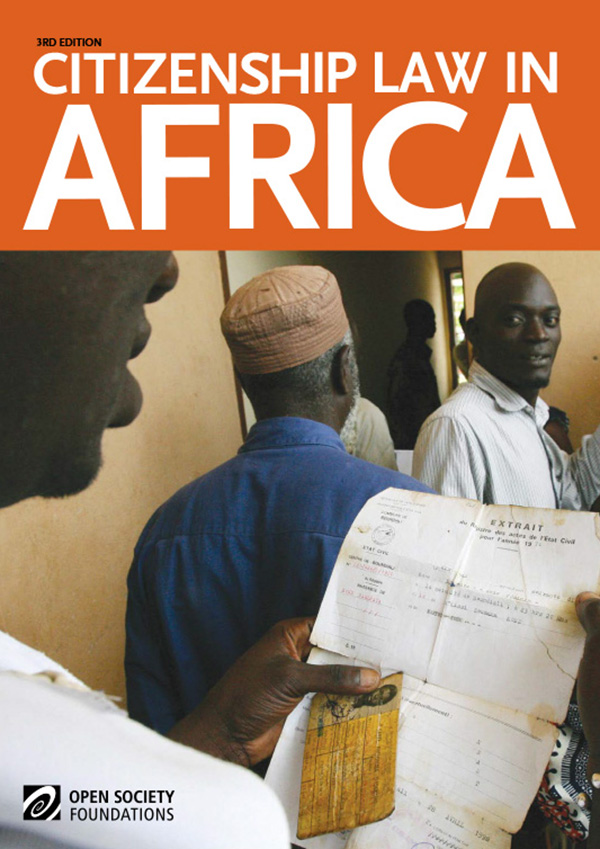
Author: Bronwyn Manby
Cape Town, South Africa: African Minds, 2016
https://doi.org/10.47622/9781928331087
Few African countries provide for an explicit right to a nationality. Laws and practices governing citizenship effectively leave hundreds of thousands of people in Africa without a country. These stateless Africans can neither vote nor stand for office; they cannot enrol their children in school, travel freely, or own property; they cannot work for the government; they are exposed to human rights abuses. Statelessness exacerbates and underlies tensions in many regions of the continent. Citizenship Law in Africa, a comparative study by two programs of the Open Society Foundations, describes the often arbitrary, discriminatory, and contradictory citizenship laws that exist from state to state and recommends ways that African countries can bring their citizenship laws in line with international rights norms. The report covers topics such as citizenship by descent, citizenship by naturalisation, gender discrimination in citizenship law, dual citizenship, and the right to identity documents and passports. It is essential reading for policymakers, attorneys, and activists.
Doctoral Education in South Africa: Policy, Discourse and Data
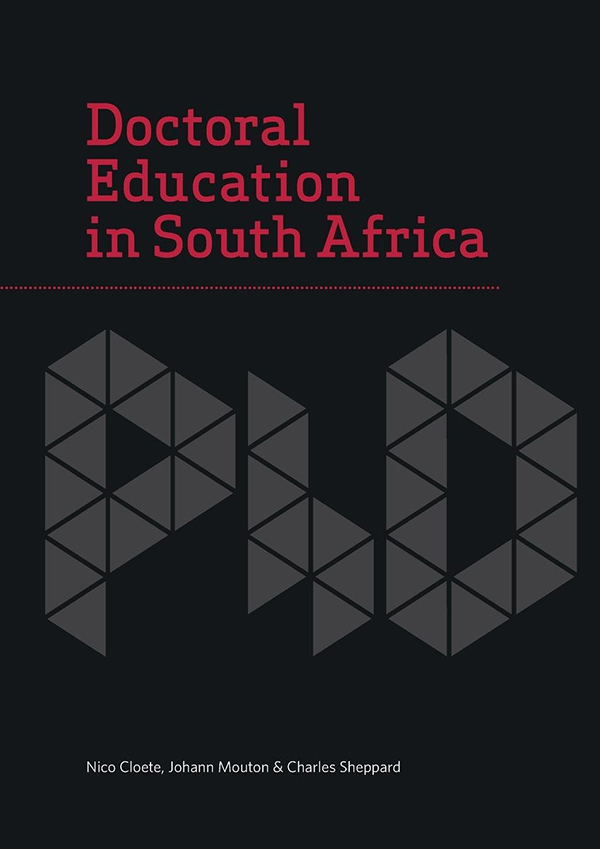
Author: Nico Cloete
Author: Johann Mouton
Author: Charles Sheppard
Cape Town: African Minds, 2016
https://doi.org/10.47622/9781928331001
Worldwide, in Africa and in South Africa, the importance of the doctorate has increased disproportionately in relation to its share of the overall graduate output over the last decade. This heightened attention has not only been concerned with the traditional role of the PhD, namely the provision of a future supply of academics. Rather, it has focused on the increasingly important role that higher education – particularly high-level skills – is perceived to play in national development and the knowledge economy.
November 2015
Knowledge for a Sustainable World: A Southern African-Nordic contribution
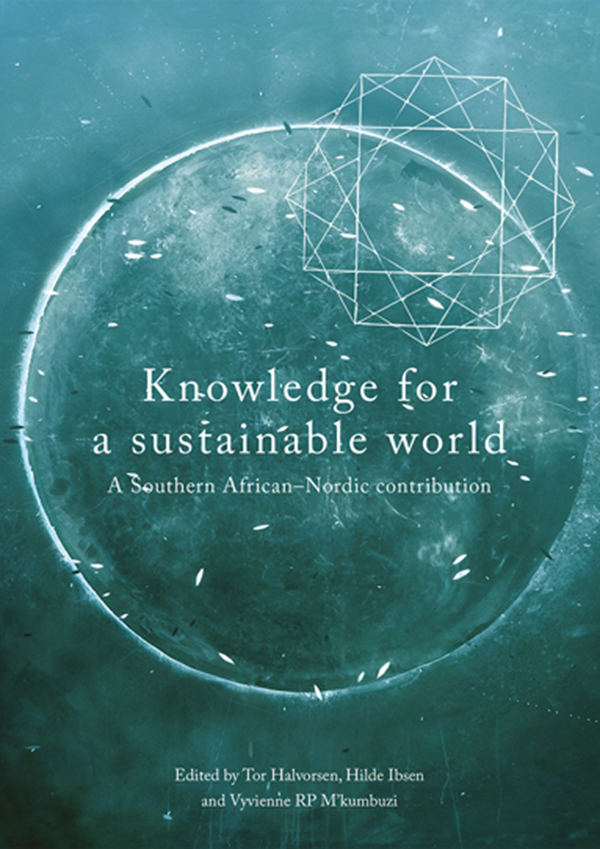
Editor: Tor Halvorsen
Editor: Hilde Ibsen
Editor: Vyvienne M’kumbuzi
Cape Town, South Africa: African Minds, 2015
October 2015
Boundaries of the Educational Imagination
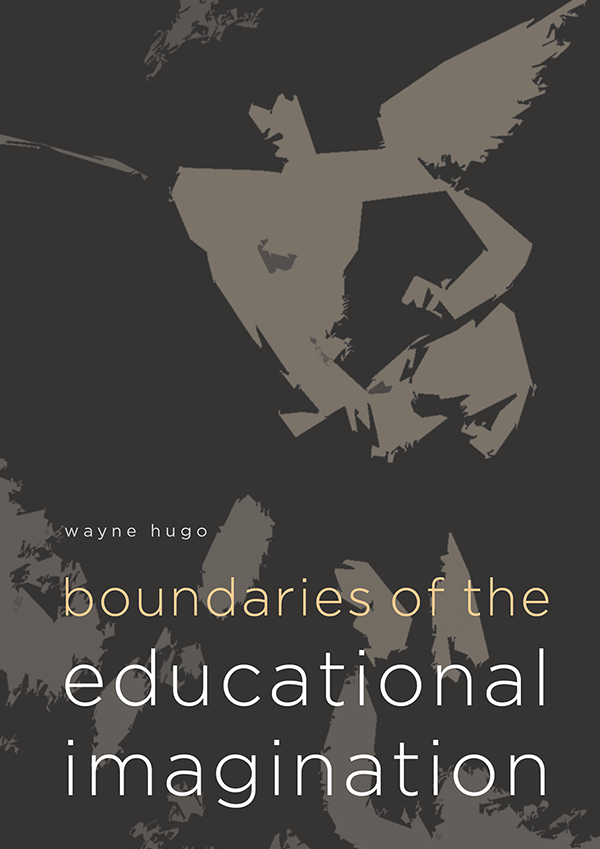
Author: Wayne Hugo
Cape Town, South Africa: African Minds, 2015
https://doi.org/10.47622/9781928331018
The educational imagination is the capacity to think critically beyond our located, daily experiences of education. It breaks away from the immediacy of personal understanding by placing education within wider, deeper and longer contexts. Boundaries of the Educational Imagination develops the educational imagination by answering six questions:
- What happens when we expand continuously outwards from one school to all the schools of the world?
- What happens if we go inside a school and explore how its material equipment has changed over the past 300 years?
- What is the smallest educational unit in our brain and how does it allow an almost infinite expansion of knowledge?
- What is the highest level of individual development we can teach students to aspire towards?
- What role does education play in a world that is producing more and more complex knowledge increasingly quickly?
- How do small knowledge elements combine to produce increasingly complex knowledge forms?
May 2015
Twenty Years of Transformation in Gauteng 1994 to 2014: An Independent Review
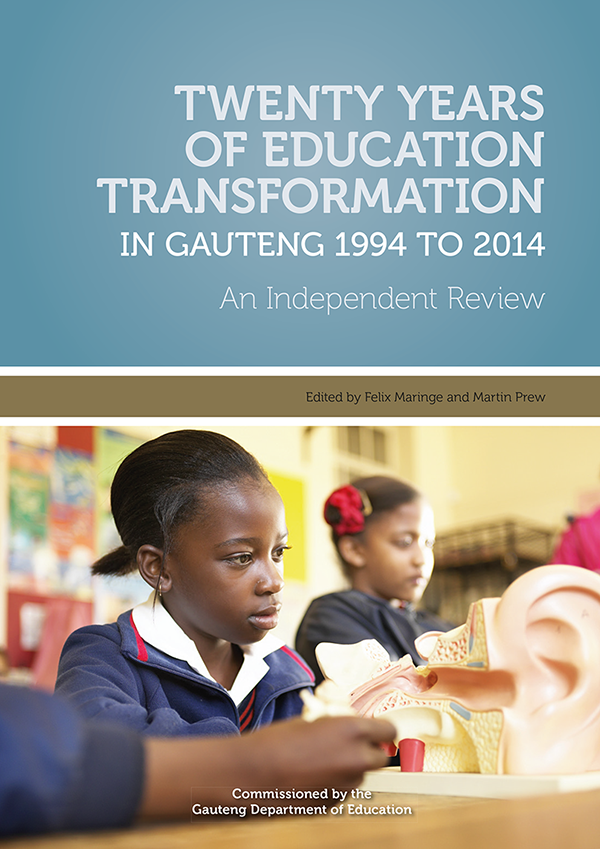
Editor: Felix Maringe
Editor: Martin Prew
Cape Town: African Minds, 2015
https://doi.org/10.47622/9780621429152
Twenty Years of Education Transformation in Gauteng 1994 to 2014: An Independent Review presents a collection of 15 important essays on different aspects of education in Gauteng since the advent of democracy in 1994. These essays talk to what a provincial education department does and how and why it does these things – whether it be about policy, resourcing or implementing projects. Each essay is written by one or more specialist in the relevant focus area.
The book is written to be accessible to the general reader as well as being informative and an essential resource for the specialist reader. It sheds light on aspects of how a provincial department operates and why and with what consequences certain decisions have been made in education over the last 20 turbulent years, both nationally and provincially.
There has been no attempt to fit the book’s chapters into a particular ideological or educational paradigm, and as a result the reader will find differing views on various aspects of the Gauteng Department of Education’s present and past. We leave the reader to decide to what extent the GDE has fulfilled its educational mandate over the last 20 years.
Leadership and Management: Case Studies in Training in Higher Education in Africa
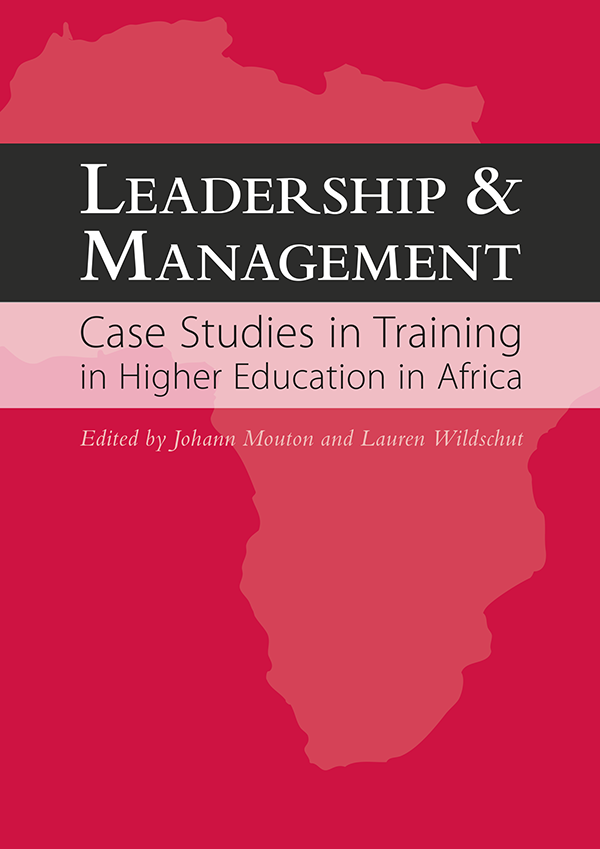
Editor: Johann Mouton
Editor: Lauren Wildschut
Cape Town: African Minds, 2015
March 2015
Knowledge Production and Contradictory Functions in African Higher Education
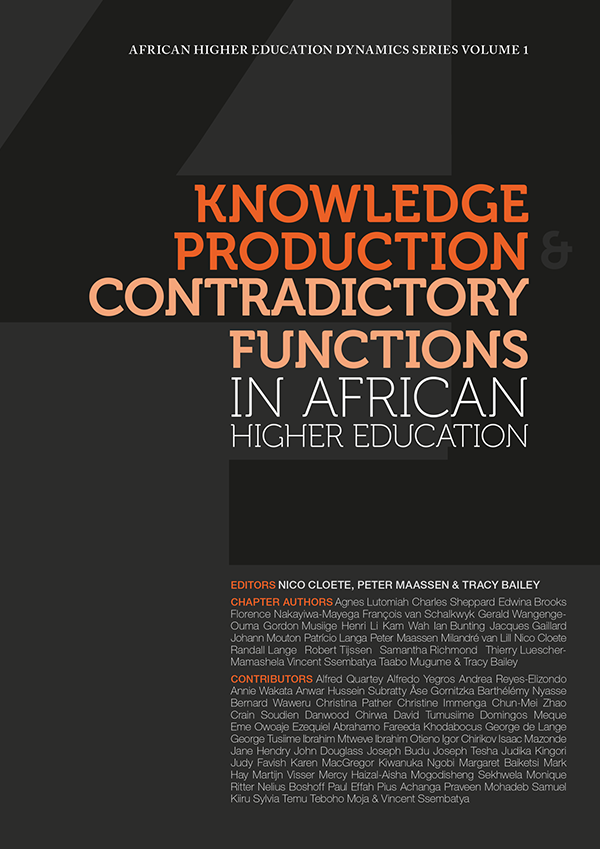
Editor: Nico Cloete
Editor: Peter Maassen
Editor: Tracy Bailey
Cape Town: African Minds, 2015
December 2014
A Comprehensive Review of Methods for the Channel Allocation Problem
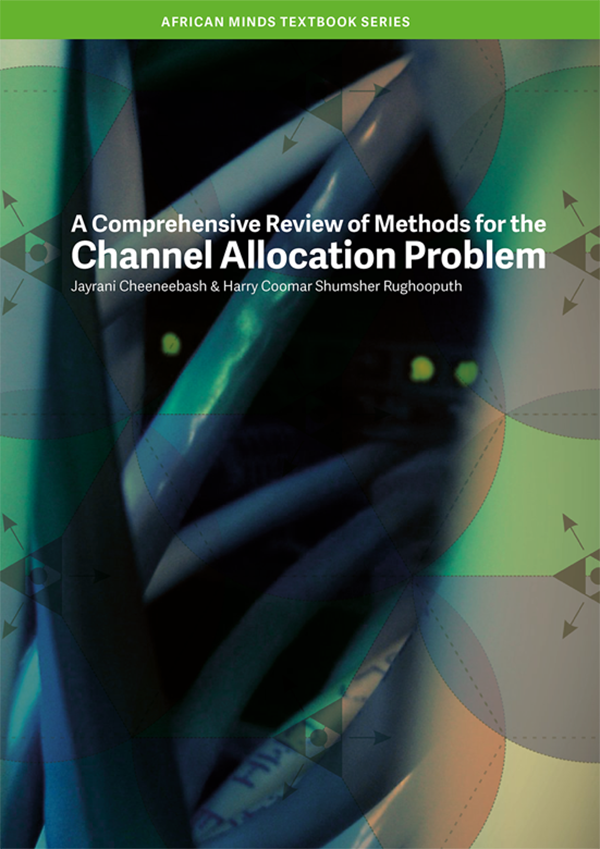
Author: Jayrani Cheenebash
Author: Harry Coomar Shumsher Rughooputh
Cape Town, South Africa: African Minds, 2014
https://doi.org/10.47622/9781920677534
The study of the channel allocation problem has received much attention during the last decade. Several techniques such as genetic algorithm, artificial neural network, simulated annealing, tabu search and others have been used. This book is devoted to compiling all the techniques that have been used to solve the channel allocation problem. Each of the methods is described fully in a manner that explains the essential parts of how the techniques are formulated and applied in solving the problem. This textbook will be helpful to students studying communications or researchers as it compiles all the techniques used since this problem was first solved.
October 2014
Higher Education in Portuguese Speaking African Countries
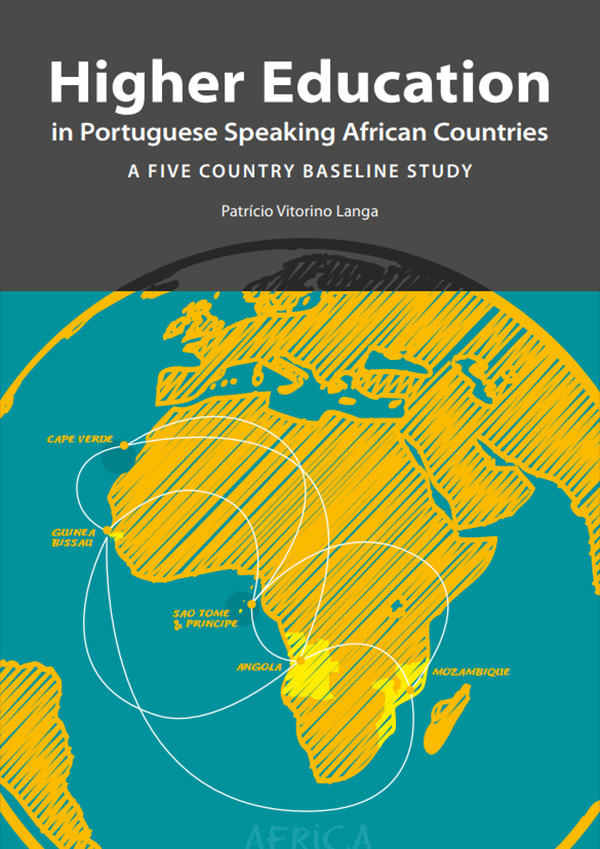
Author: Patrício Langa
Cape Town, South Africa: African Minds, 2014
June 2014
Confronting Exclusion: 2013 Transformation Audit
Editor: Jan Hofmeyr
Cape Town: African Minds, 2014
https://doi.org/10.47622/9781920677428
South Africa has made important political strides over the past two decades. It has created a framework of democratic legislative, executive and judicial institutions that mark a clear break from the apartheid past. In theory, they are inclusive and offer every citizen equal access to constitutionally protected rights. Their capacity to deliver, however, is coming under increasing pressure and, as this happens, citizen confidence in their efficacy is waning.
Much of the pressure, which ultimately may affect their legitimacy in the eyes of ordinary citizens, stems from the desperation and sense of economic exclusion experienced by those who find themselves at the wrong end of South Africa’s grossly unequal society. If this decline in trust persists, the cohesive effects of the country’s democratic institutions will diminish, and instability will become an increasingly common feature of political contestation.
Systemic School Improvement Interventions in South Africa: Some Practical Lessons from Development Practioners
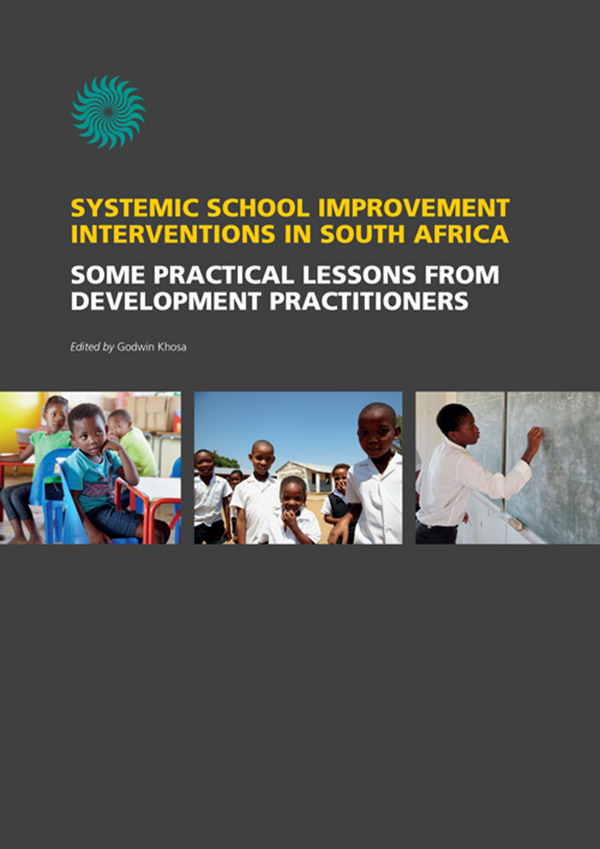
Editor: Godwin Khosa
Cape Town, South Africa: African Minds, 2014
Perspectives on Students Affairs
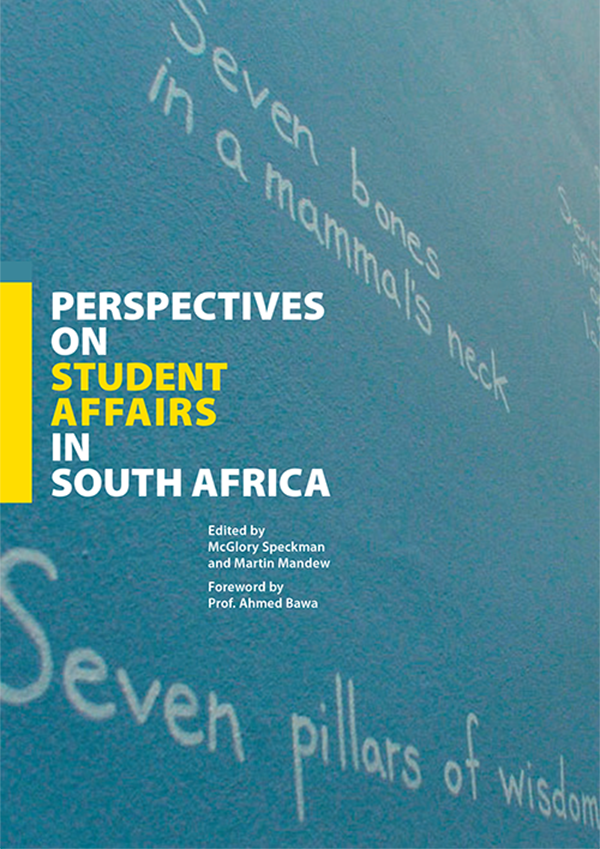
Editor: McGlory Speckman
Editor: Martin Mandew
Foreword by: Ahmed Bawa
Cape Town: African Minds, 2014
https://doi.org/10.47622/9781920677442
The goal of Perspectives on Student Affairs in South Africa is to generate interest in student affairs in South Africa. The papers contained herein are based on best practice, local experience and well-researched international and local theories.
The papers in this book deal with matters pertaining to international and national trends in student affairs: academic development, access and retention, counselling, and material support for students coming from disadvantaged backgrounds. They are linked to national and international developments, as described in the first two papers.
This publication will assist both young and experienced practitioners as they grow into their task of developing the students entrusted to them.
All contributors are South Africans with a great deal of experience in student affairs, and all are committed to the advancement of student affairs in South Africa. The editors are former heads of student affairs portfolios at two leading South African universities.
May 2014
Seeking Impact and Visibility: Scholarly Communication in Southern Africa
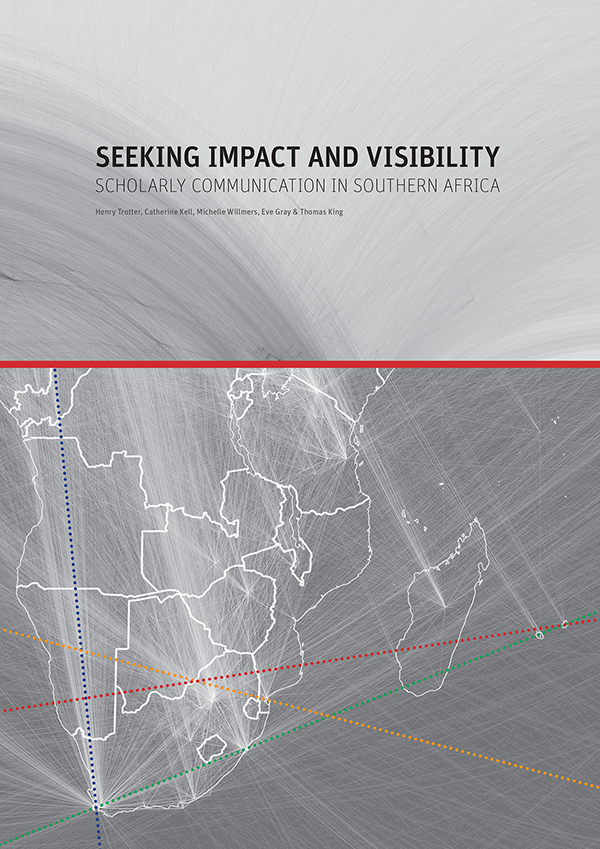
Author: Henry Trotter
Author: Catherine Kell
Author: Michelle Willmers
Author: Eve Gray
Author: Thomas King
Cape Town, South Africa: African Minds, 2014
Driving Change: The Story of the South Africa Norway Tertiary Education Development Programme
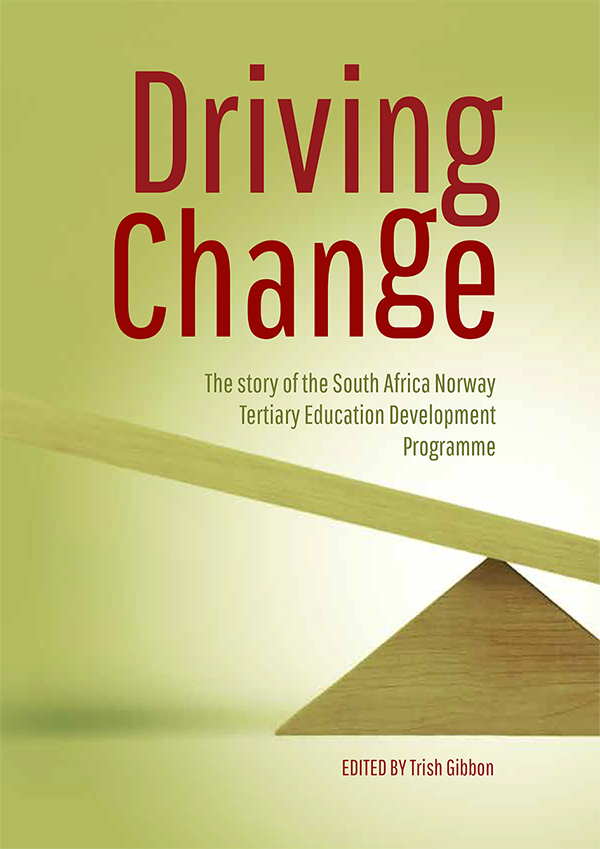
Editor: Trish Gibbon
Cape Town, South Africa: African Minds, 2014
https://doi.org/10.47622/9781920677435
Driving Change tells a story that exemplifies a basic law of physics, known to all the application of a relatively small lever can shift weight, create movement and initiate change far in excess of its own size.
It tells a story about a particular instance of development co-operation, relatively modest in scope and aim that has nonetheless achieved remarkable things and has been held up as an exemplar of its kind.
It does not tell a story of flawless execution and perfectly achieved outcomes: it is instead a narrative that gives some insight into the structural and organisational arrangements, the institutional and individual commitments, and above all, the work, intelligence and passion of its participants, which made the South Africa Norway Tertiary Education Development (SANTED) Programme a noteworthy success.
November 2013
Trading Places: Accessing Land in African Cities
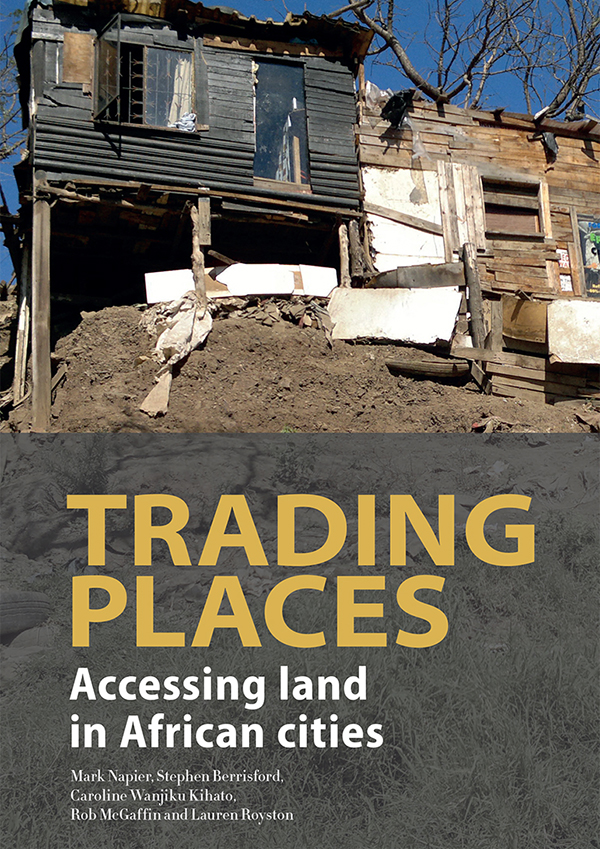
Editor: Mark Napier
Editor: Stephen Berrisford
Editor: Caroline Kihato
Editor: Rod McGaffin
Editor: Lauren Royston
Cape Town, South Africa: African Minds, 2013
May 2013
The Origins of War in Mozambique: A History of Unity and Division
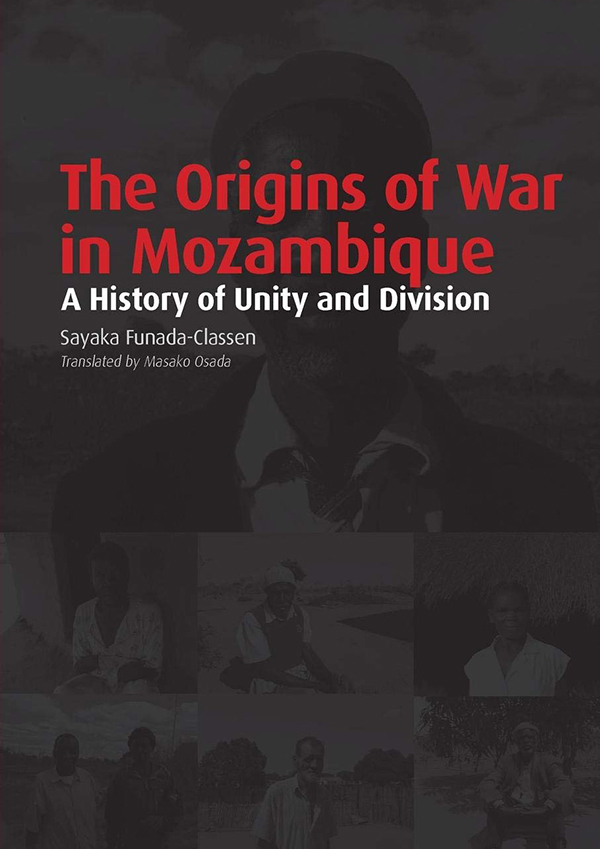
Author: Sayaka Funada-Classen
Cape Town, South Africa: African Minds, 2013
Sounding the Cape: Music, Identity and Politics in South Africa
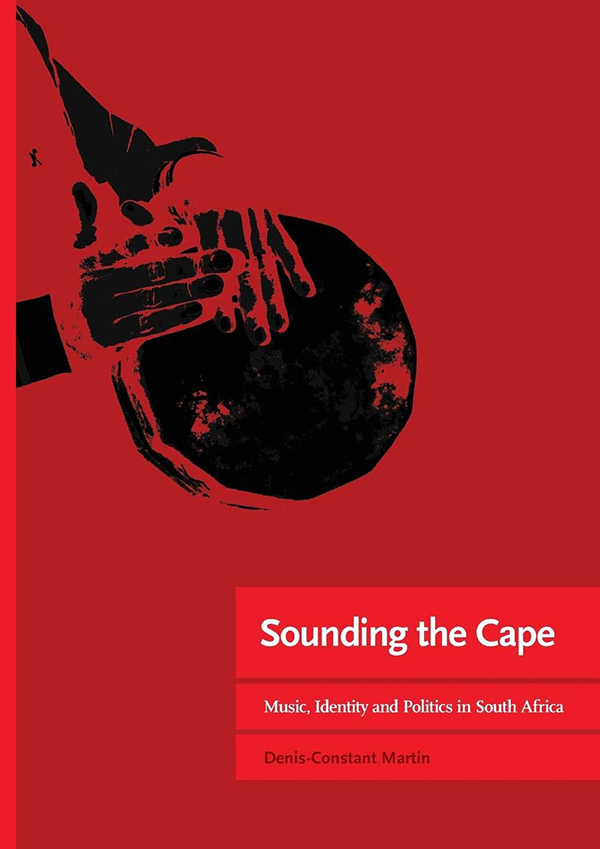
Author: Denis-Constant Martin
Cape Town, South Africa: African Minds, 2013
August 2012
Public Broadcasting in Africa Series: Nigeria
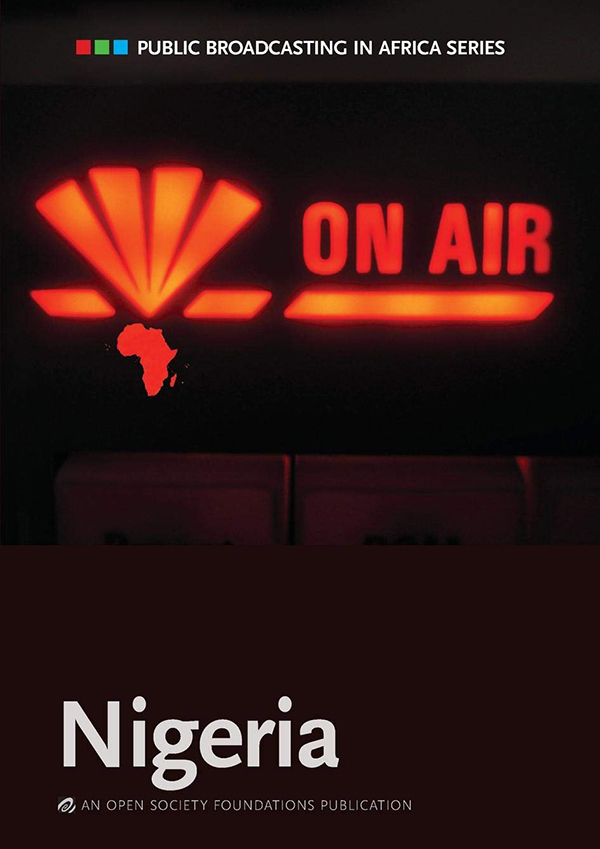
Author: Akin Akingbulu
Cape Town: African Minds, 2012
https://doi.org/10.47622/9781920489007
This report on the broadcast media in Nigeria finds that liberalisation efforts in the broadcasting sector have only been partially achieved. More than a decade after military rule, the nation still has not managed to enact media legislation that is in line with continental standards, particularly the Declaration on Freedom of Expression in Africa. The report, part of an 11-country survey of broadcast media in Africa, strongly recommends the transformation of the two state broadcasters into a genuine public broadcaster as an independent legal entity with editorial independence and strong safeguards against any interference from the federal government, state governments and other interests.
Towards a People-Driven African Union: Current Obstacles and New Opportunities
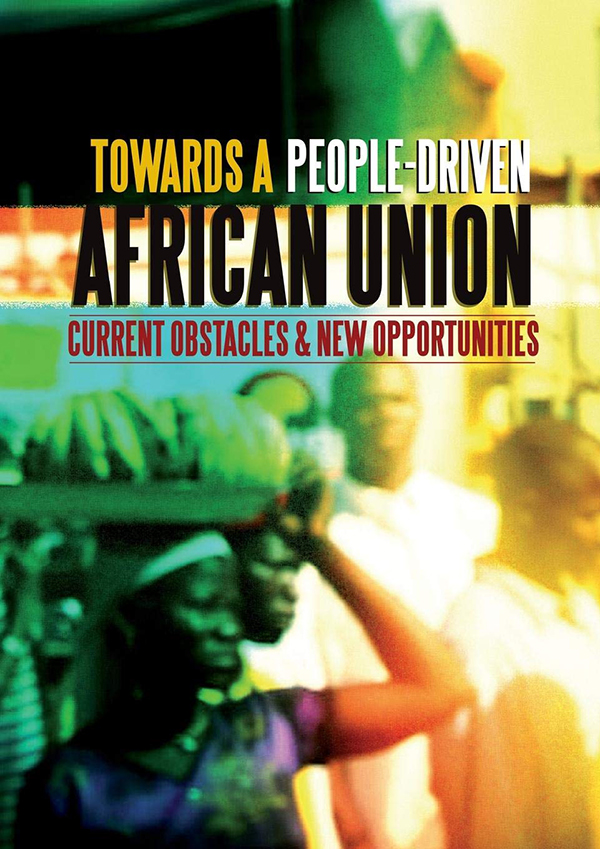
Editor: AfriMAP
Cape Town, South Africa: African Minds, 2012
Public Broadcasting in Africa Series: Zimbabwe
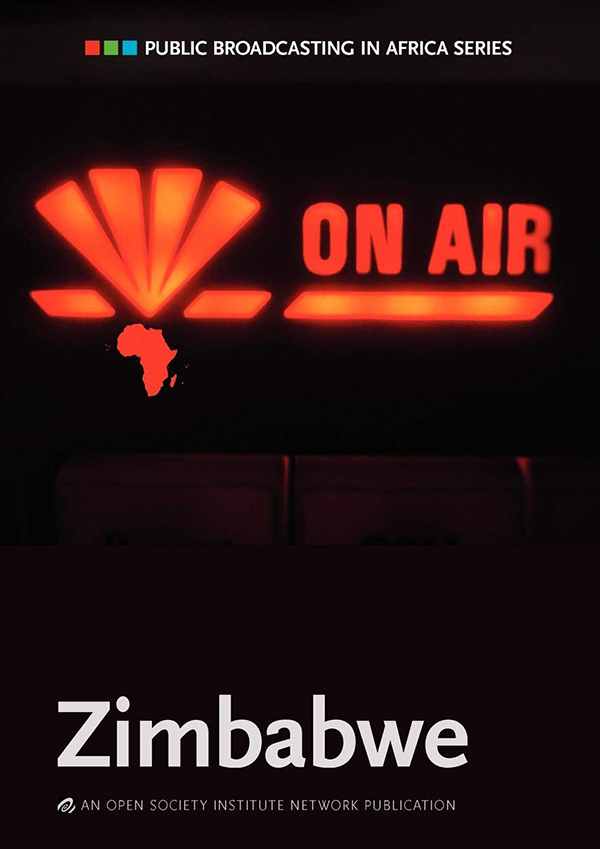
Author: Sarah Chiumbu
Cape Town: African Minds, 2012
https://doi.org/10.47622/9781920355265
This report is the result of research that started in 2008 with the aim of collecting, collating and writing up information about regulation, ownership, access, performance as well as prospects for public broadcasting reform in Africa. The Zimbabwe report is part of an 11-country survey of African broadcast media, evaluating compliance with the agreements, conventions, charters and declarations regarding media that have been developed at regional and continental levels in Africa.
Public Broadcasting in Africa Series: Uganda
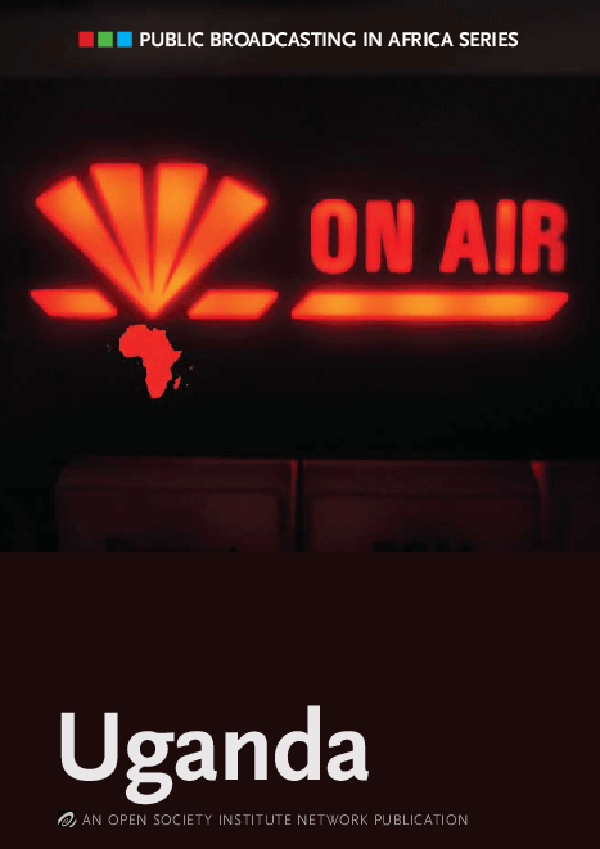
Author: George Lugalambi
Cape Town, South Africa: African Minds, 2012
July 2012
Citizenship Law in Africa: A Comparative Study (2nd edition)
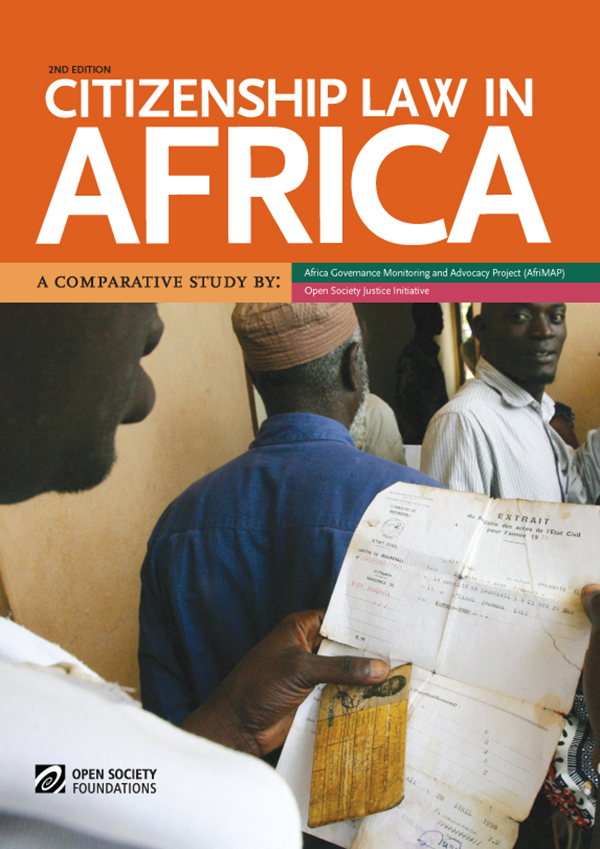
Author: Bronwyn Manby
Cape Town: African Minds, 2012
https://doi.org/10.47622/9781936133291
Few African countries provide for an explicit right to a nationality. Laws and practices governing citizenship effectively leave hundreds of thousands of people in Africa without a country. These stateless Africans can neither vote nor stand for office; they cannot enrol their children in school, travel freely, or own property; they cannot work for the government; they are exposed to human rights abuses.
Statelessness exacerbates and underlies tensions in many regions of the continent.
Citizenship Law in Africa, a comparative study by two programs of the Open Society Foundations, describes the often arbitrary, discriminatory, and contradictory citizenship laws that exist from state to state and recommends ways that African countries can bring their citizenship laws in line with international rights norms.
The report covers topics such as citizenship by descent, citizenship by naturalisation, gender discrimination in citizenship law, dual citizenship, and the right to identity documents and passports.
It is essential reading for policymakers, attorneys, and activists.
This second edition includes updates on developments in Kenya, Libya, Namibia, South Africa, Sudan and Zimbabwe, as well as minor corrections to the tables and other additions throughout.
May 2012
Dick Fehnel: Lessons from Graver’s School

Author: Richard Fehnel
Cape Town: African Minds, 2012
https://doi.org/10.47622/9781920355043
Dick Fehnel worked as higher education consultant for World Bank, Ford Foundation and the Human Sciences Research Council. He held the positions of acting representative (1998–1999) and programme officer (1993–2000) for the Ford Foundation, Southern Africa, after which he semi-retired to Portland Oregon, and continued to travel and consult until his death in May 2006.
Hijab: Unveiling Queer Muslim Lives

Author: The Inner Circle
Cape Town: African Minds, 2012
https://doi.org/10.47622/9781920355203
Hijab: Unveiling Queer Muslim Lives is the first known collection of South African Muslim stories relating to Islam and sexual diversity. This anthology shares real life stories of people that have struggled, or may still be struggling, to reconcile their spirituality and their sexuality. These are stories that illustrate the oneness of being and reflect on how some interpretations of the scriptures may alienate others. Although the collection focuses predominantly on Muslim stories, it is universal in its approach in dealing with spirituality rather than religion.
Beyond Memory: Recording the History, Moments and Memories of South African Music
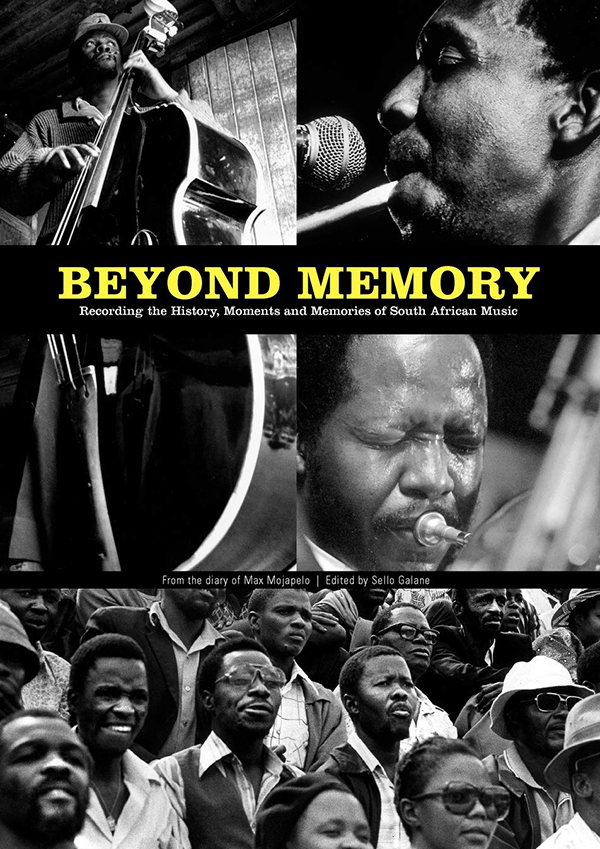
Author: Sello Galane
Cape Town: African Minds, 2012
https://doi.org/10.47622/9781920299286
South Africa possesses one of the richest popular music traditions in the world – from marabi to mbaqanga, from boeremusiek to bubblegum, from kwela to kwaito. Yet the risk that future generations of South Africans will not know their musical roots is very real. Of all the recordings made here since the 1930s, thousands have been lost for ever, for the powers-that-be never deemed them worthy of preservation. And if one peruses the books that exist on South African popular music, one still finds that their authors have on occasion jumped to conclusions that were not as foregone as they had assumed. Yet the fault lies not with them, rather in the fact that there has been precious little documentation in South Africa of who played what, or who recorded what, with whom, and when. This is true of all music-making in this country, though it is most striking in the musics of the black communities.
The University in Africa and Democratic Citizenship: Hothouse or Training Ground?
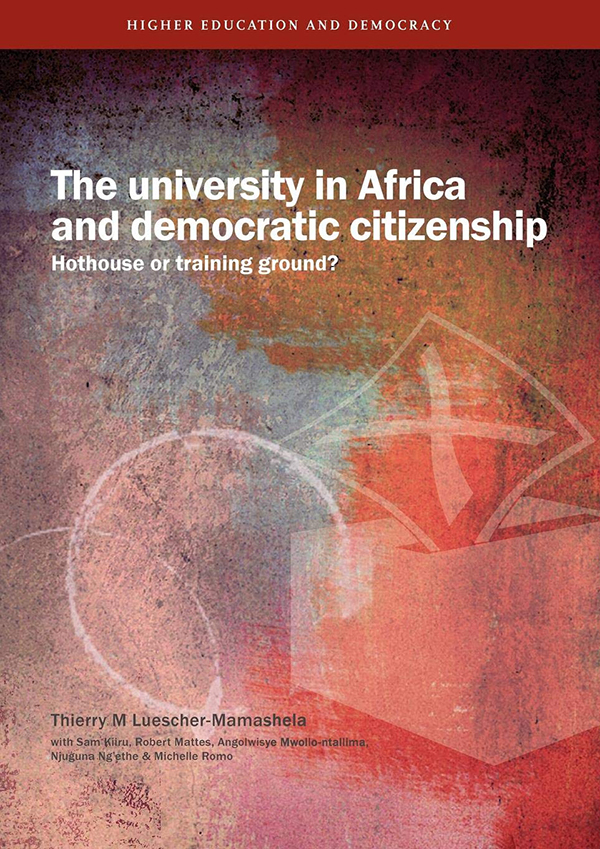
Author: Thierry Luescher-Mamashela
Cape Town, South Africa: African Minds, 2012
Reflections on Identity in Four African Cities
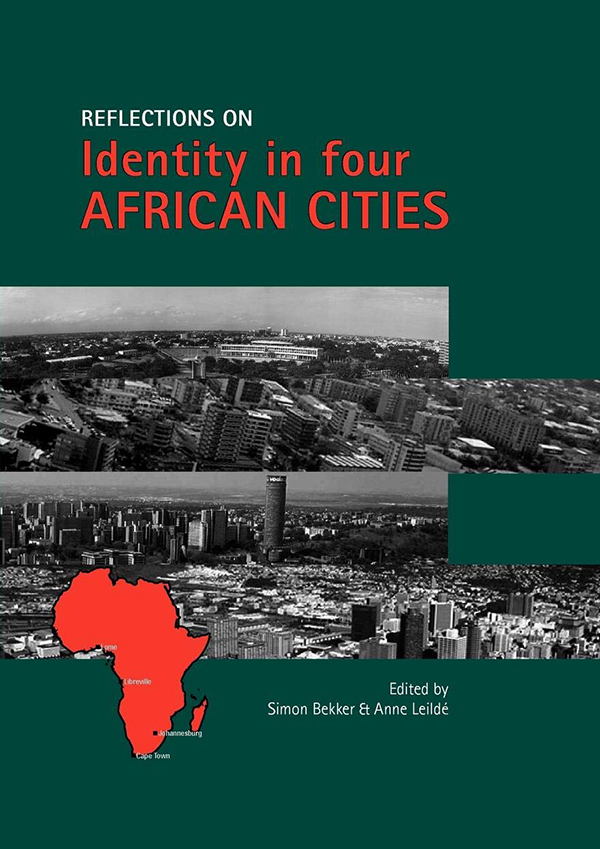
Editor: Simon Bekker
Editor: Anne Leilde
Cape Town, South Africa: African Minds, 2012
Linking Higher Education and Economic Development: Implications For Africa From Three Successful Systems
Author: Pundy Pillay
Cape Town: African Minds, 2012
https://doi.org/10.47622/9781920355449
Finland, South Korea and the state of North Carolina in the United States are three systems that successfully have harnessed higher education in their economic development initiatives. Common to the success of the all these systems is, amongst others, the link between economic and education planning, quality public schooling, high tertiary participation rates with institutional differentiation, labour market demand, cooperation and networks, and consensus about the importance of higher education for development.
Higher Education Financing in East and Southern Africa
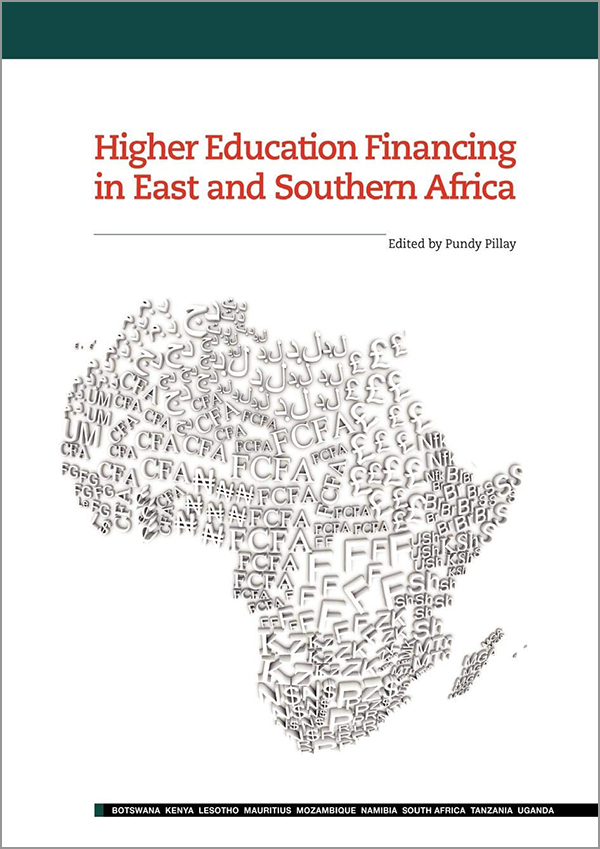
Editor: Pundy Pillay
Cape Town, South Africa: African Minds, 2012
Wildland Fire Management Handbook for Sub-Sahara Africa
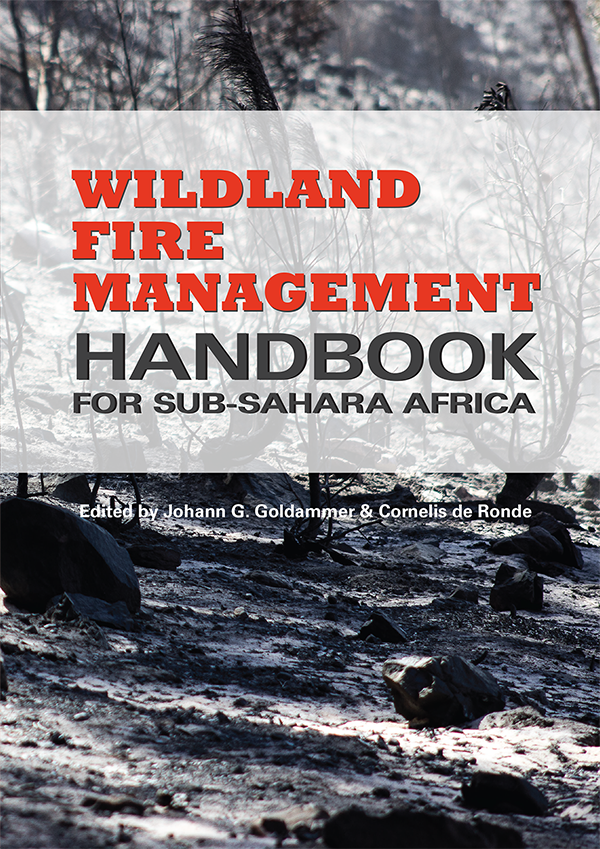
Editor: Johann G. Goldammer
Editor: Cornelis de Ronde
Cape Town: African Minds, 2012
https://doi.org/10.47622/9781928331629
Fire has been used as a land-use tool for controlling the environment since the early evolution of humanity. Fire continues to be used as such by people living in different ecosystems across sub-Saharan Africa. Consequently, the rich biodiversity of tropical and subtropical savannas, grasslands and fire ecosystems is attributed to the regular occurrence and influence of fire. However, wildfires have been harmful to ecosystems, economies and human security. This is due to increasing population pressure as well as increased vulnerability of agricultural and residential lands.
The Wildland Fire Management Handbook provides scientific guidelines for maintaining and stabilising ecosystems and for state-of-the art fire prevention and control. The handbook features contributors from diverse backgrounds in wildland fire science and fire management. It deals with topics ranging from fire behaviour and controlled burning to fire ecology and the effects of burning on Cape fynbos. In addition the Wildland Fire Management Handbook includes fire regimes and fire history in West Africa. Thus, the handbook is groundbreaking in its furthering of sub-Saharan Africa’s capacity for fire management and consequent preservation of the environment. The Wildland Fire Management Handbook is an important resource for strategic sustainable land-use planning, disaster management and land security. The handbook is well suited to the needs of wildland fire management practitioners, scientists, academics, and students of universities and technical schools. Thus, environmental consultants, conservationists, ecologists and those dealing with wildland fire disaster prevention, preparedness and mitigation will be interested in the book.
Some Developments in Research in Science and Mathematics in Sub-Saharan Africa
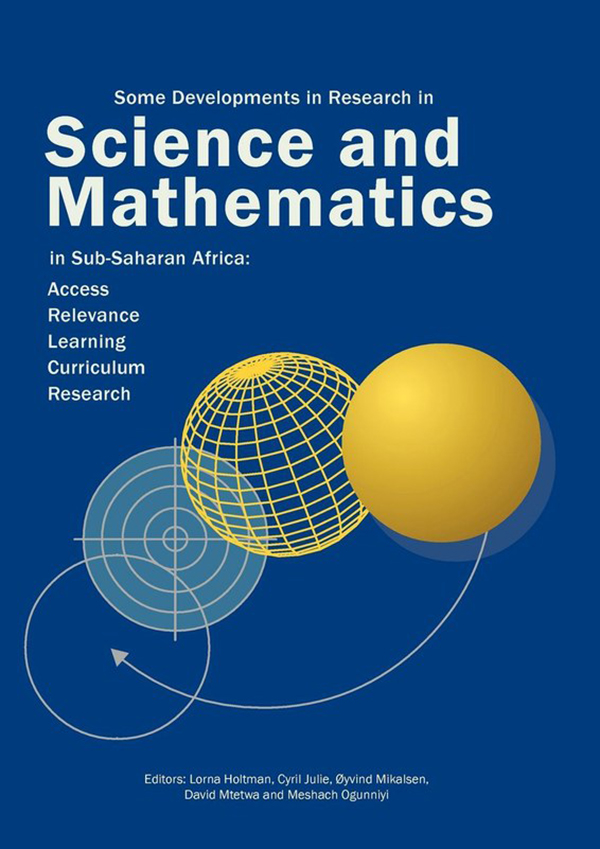
Editor: Lorna Holtman
Editor: Cyril Julie
Editor: Øyvind Mikalsen
Editor: David Mtetwa
Editor: Meshach Ogunniyi
Cape Town: African Minds, 2012
https://doi.org/10.47622/9781920299293
Much attention in late-developing countries is given to providing access to studies which allow school leavers to enter science and technology-related careers. These programmes are driven by the belief that graduates will then substantially contribute to the developmental needs of their countries.
But is providing access to institutions enough? Students in developing countries often come from school environments lacking in resources – human, physical and financial. This book, in a number of chapters, reviews research related to the crucial dimension of epistemological access to the disciplines of import, which students need as much as institutional access in order to improve their chances of success.
A significant feature of this collection’s research studies is that their empirical bases are highly localised, covering areas such as: research methods; access; curriculum, instruction and assessment; and the relevance of science and mathematics education in Zimbabwe, Uganda, Swaziland, South Africa, Namibia, Malawi, Ghana and Lesotho.
This volume provides invaluable insights and will be of relevance to researchers, policy makers and lecturers interested in these research outcomes in Sub-Saharan Africa. It is the outcome of a doctoral research capacity development project, the Graduate Studies in Science, Mathematics and Technology Education (GRASSMATE).
Career Choice: The Voices of Music Students

Editor: Taryn Arnott
Editor: Louise Saunders
Cape Town: African Minds, 2012
https://doi.org/10.47622/9781920299309
It is most times not easy for school leavers to make the right choices about the field of academic study that would help them attain their career visions. Factors including family upbringing, social-cultural experiences, early education, peer associations and perception of self all impact on the career choices of young persons.
This book researches and presents a sampling of first-hand accounts of the personal journeys towards the choice of music as a field of specialisation written by students at the Department of Music, University of Pretoria, South Africa. The self-explorations included in the book are insightful glimpses into the individual histories of the students that are worth telling. The varied individual stories are instructive to any young person who wishes to reflect seriously on self and capability before deciding on an appropriate field of higher academic studies.
African Classical Ensemble Music Book 1: Agiri Music (Foundation)
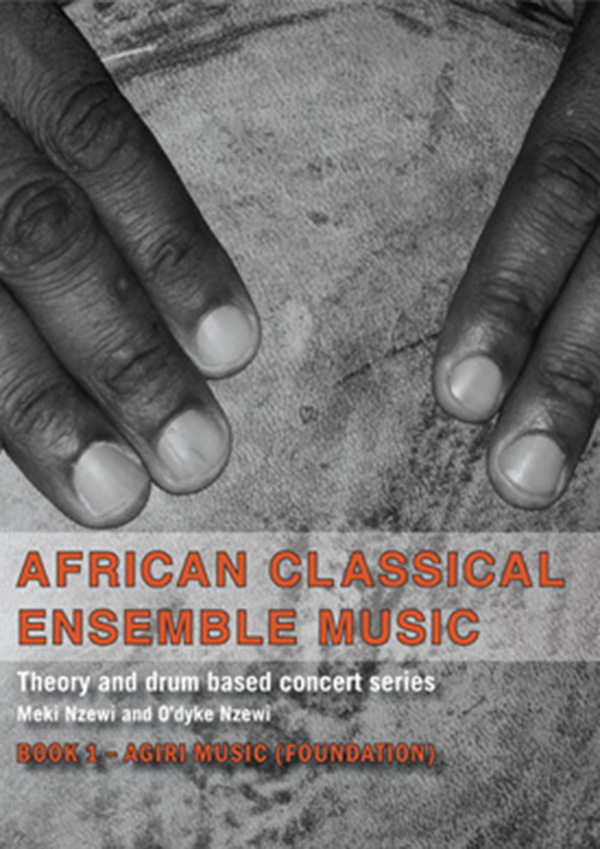
Author: Meki Nzewi
Author: Odyke Nzewi
Cape Town: African Minds, 2012
https://doi.org/10.47622/9781920355005
The study of African music must be grounded in indigenous African knowledge systems, thus making it truly representative of indigenous Africa’s intellectual history. The African Classical Ensemble Music: Theory and Drum-based Concert Series is intended to empower literacy-driven ensemble creativity which, in turn, advances the philosophical, theoretical, medical and humanizing imperatives of African indigenous musical arts lore.
Focus on Fresh Data on the Language of Instruction in Tanzania and South Africa
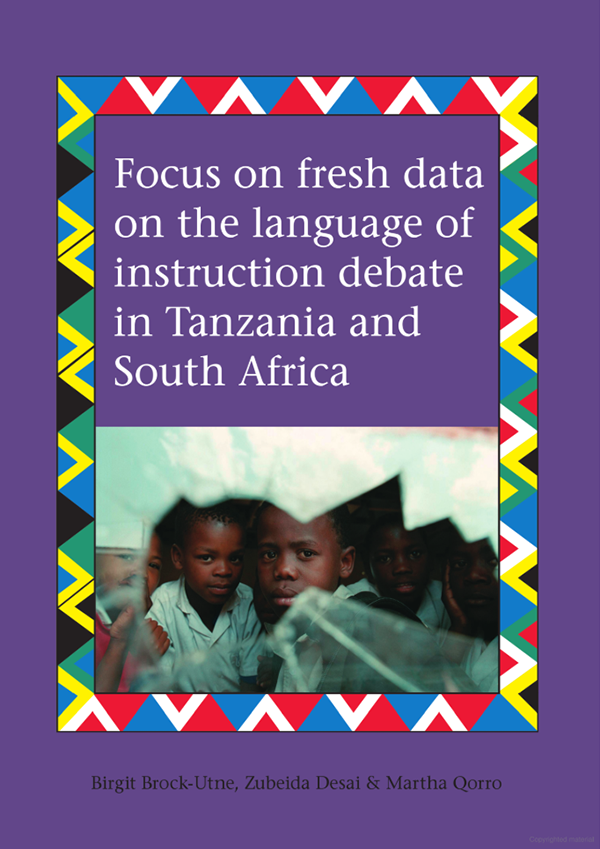
Author: Birgit Brock-Utne
Author: Zubeida Desai
Author: Martha Qorro
Cape Town: African Minds, 2012
https://doi.org/10.47622/9781920051464
This is a series of books from the LOITASA (Language of Instruction in Tanzania and South Africa) project. LOITASA is a NUFU-funded (Norwegian University Fund) project which began in January 2002 and continued till the end of 2006. It is, what in donor circles is known as a ‘South-South-North’ cooperation project which, in this case, involves research cooperation between South Africa, Tanzania and Norway. The first book, entitled Language of instruction in Tanzania and South Africa (LOITASA), focused on the current language in education situation in the two countries by providing a description and analysis of existing language policies and practices.
Educational Challenges in Multilingual Societies: LOITASA Phase Two Research
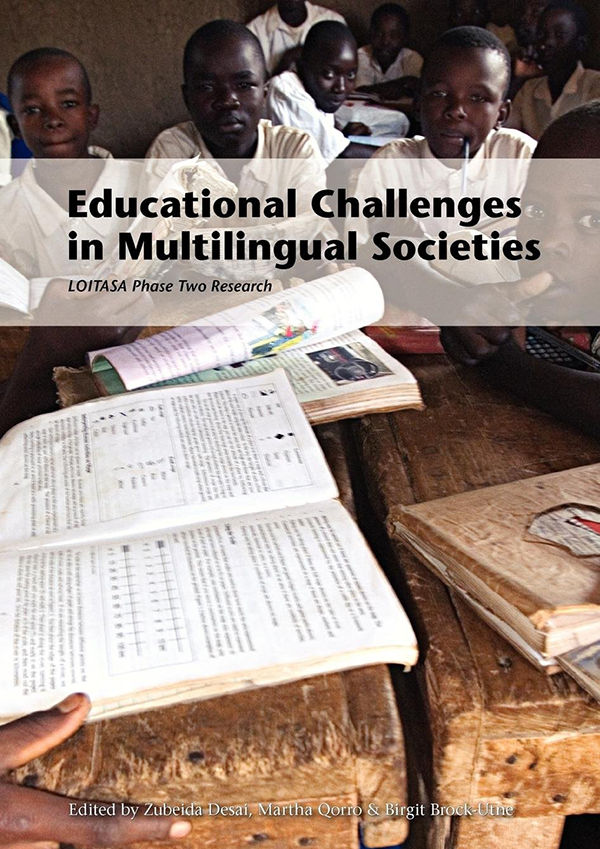
Editor: Martha Qorro
Editor: Birgit Brock-Utne
Editor: Zubeida Desai
Cape Town: African Minds, 2012
https://doi.org/10.47622/9781920489069
This book is the sixth in a series of books from the LOITASA (Language of Instruction in Tanzania and South Africa) project and reflects the work done in the sixth year of the project. This book has its main focus research carried out in South Africa and Tanzania on the language of instruction issue.
